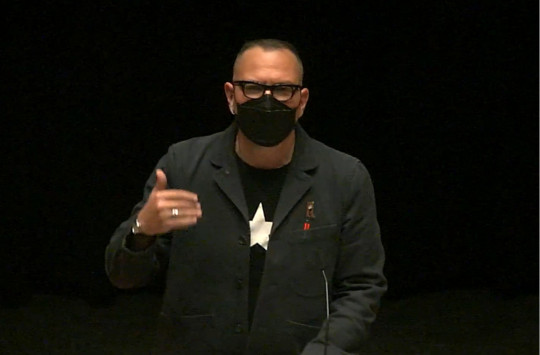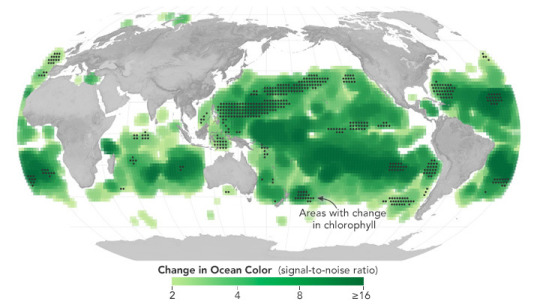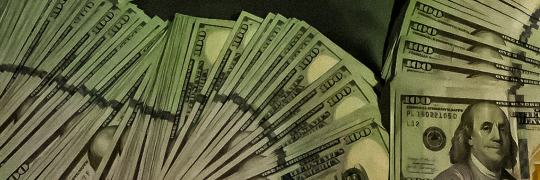#“data presentation tools”
Explore tagged Tumblr posts
Text
Graphy.app Data Visualization Made Easy (and Fast!)
Stop struggling with data! Graphy.app makes creating beautiful, impactful graphs a breeze. See how easy it is!" #datavisualization #graphs #dataanalysis #graphyapp #productivity #businesstools #analytics
Don't forget to like, comment, and subscribe for more AI content!
#impactful graphs a breeze. See how easy it is!"#datavisualization#graphs#dataanalysis#graphyapp#productivity#businesstools#analytics#Don't forget to like#comment#and subscribe for more AI content!#“data visualization”#“graph maker”#“create graphs”#“data analysis tools”#“chart maker”#“easy data visualization”#“online graph maker”#“ai graph generator”#“data visualization software”#“business graph maker”#“data reporting tools”#“interactive graph maker”#“data dashboard tools”#“graph creation online”#“data presentation tools”#“google sheets graph integration”#“notion graph integration”#“business intelligence tools”#“analytics software”
0 notes
Text
lately AI is plaguing my life ugh
#no i don't want it in WhatsApp#no my dear coworker I'll never be a pro AI hooligan#i can't trust what it says when I can't verify the data it spills and i can't really use that for our job. can i?#but also#NO i don't think it's the Devil or that people using it are all stupid or that it's a moral failure to use it as a tool#a teacher using AI to idk do a presentation draft that they will expand later is NOT a wrong use of the tool#someone using it to plan their weekly meals is not a moron either#can't anyone be normal about this thing?#ramblings
2 notes
·
View notes
Text

If you think curiosity without rigor is bad, you should see rigor without curiosity.
Good Science [Explained]
Transcript Under the Cut
[Miss Lenhart is standing in front of a whiteboard with some scribbles on it.] Miss Lenhart: I'm supposed to give you the tools to do good science.
[Miss Lenhart is now standing in front of Jill and Cueball, who are seated at classroom desks.] Miss Lenhart: But what are those tools? Miss Lenhart: Methodology is hard and there are so many ways to get incorrect results. Miss Lenhart: What is the magic ingredient that makes for good science?
[Miss Lenhart headshot.] Miss Lenhart: To figure it out, I ran a regression with all the factors people say are important:
[A list, presented in a sub-panel that Miss Lenhart is pointing to:] Outcome variable: • correct scientific results
Predictors: • collaboration • skepticism of others' claims • questioning your own beliefs • trying to falsify hypotheses • checking citations • statistical rigor • blinded analysis • financial disclosure • open data [presumably the list goes on, as it runs off the visible part of the panel]
[Another Miss Lenhart headshot.] Miss Lenhart: The regression says two ingredients are the most crucial: 1) genuine curiosity about the answer to a question, and 2) ammonium hydroxide
[Miss Lenhart, standing, and Jill, seated at desk] Jill: Wait, why did ammonia score so high? How did it even get on the list? Miss Lenhart: ...and now you're doing good science!
2K notes
·
View notes
Text
Yeah this is one of the reasons machine learning sucks. Not only will bias (accidental or intentional) from programmers peek through (that's why a lot of the automatic soap dispensers struggle with darker skin tones), since the "AI" machine learning it scraps all sorts of stuff from all over the web that will be reflected in what it generates. And on top of that machine learning is based on patterns, and thus will exclude outliers and amplify biases – which in turn will cause it to have a strong tendency to remove diverse elements or worse, "confirm" racist or other bigotry. As in the example above the "AI", a glorified pattern recognition machine, kept giving black people lower scores consistently. That is not a proof of black people being worse at their jobs, that's a proof of a biased programming. And you can bet that "applications review AI" will be biased in the exact same ways because it's trained in the same biased bs data, there is no way they carefully hands-collected or crafted data to make it as diverse an unbiased as possible. And you can probably also bet that if you check that little box your application will be instantly trashed. At least that person in the notes who said the AI probably wasn't smart enough to see through the "buzzwords in white and 5pt" trick might be onto something though. If they're gonna cheat the system then maybe we should do it back too

Dystopian button my friend saw during a job application
#i think what bugs me the most is that people don't think critically about the pitfalls of using ai#like sure it can be used as a great tool if you remember to be smarter than it and critical af and only use it as an aid and so on#(eg get help with writing application letters to 85364795 jobs because those are evil too so fight fire with fire so avoid madness i guess)#but that's not how most people appear to be using it#the technology is moving too fast#legalisations to protect artists and writers can't keep up#there is no control over exactly what data is being used for it to train on#or that it somehow correctly “categorises” what info comes from so it doesn't present hate group propaganda as facts#(like that video with the guy who demonstrated this with art ai and autism and got obvious autism speaks stuff)#i genuinely hope that ai starts to die down (pretty sure i saw some article that implied it was beginning to)#but i don't think ai will disappear completely#but it would probably be helpful if the system crashed completely and then was reformed these tendencies in mind#anyway as it is now and seems to be for the foreseeable future: i hate it#fuck ai
2K notes
·
View notes
Text
Chinese Censorship of the 2023 Hugo Award Nominations
Back before the 2023 Hugo Nominations were conducted, I noted that the Chengdu Worldcon Hugo committee had inserted a worrying clause indicating that local government officials could invalidate nominations for breaching the norms and standards of China. I suspected this would result in arbitrarily applied censorship to control the ballot. I am sad and unsurprised to discover I was correct.
The 2023 Hugo Nomination vote data has been published (https://www.thehugoawards.org/2024/01/2023-nominating-and-final-ballot-statistics-published/), and includes notation where nominations were excluded from the ballot. Those with normal reasons, such as being in the wrong category or not being published in 2022 are identified with their reasons for exclusion. This time there are a number of nominations that are merely marked at "Not eligible".
Here is the list of those nominations, that would otherwise have been placed on the final 2023 Hugo Award Ballot.
Babel - R.F. Kuang - Best Novel: Very likely excluded for referencing student revolution, and the use of language and translation as coercive tools of oppression. Color the World - Congyun "Mu Ming" Hu - Best Novellette : A story about perception of, aid of, and discrimination against disability. Congyun Hu has left China and now lives in New York. Fogong Temple Padoga - Hai Ya - Best Story : Either there is something in the original Chinese that was not translated, there's a taboo subject that elides my reading, or this otherwise innocent looking near future tale of cultural building restoration was written by the wrong person. The Art of Ghost of Tsushima: Dark Horse and Sucker Punch Games - Best Related Work : The video game Ghost of Tsushima was subject to directed social exclusion for it's depiction of the Mongol invasion of Japan. Sandman, Amazon Studios: Best Dramatic Presentation (Long and Short) - A diverse and divergent cast, includes subject matter and social issues that are currently taboo in China. Paul Weimer - Fan Writer: Publicly Critical of holding a Worldcon in China. Xiran Jay Zhao - Astounding Award: Qualifying work "Iron Widow" is reimagined story of Chinese Empress Wu during a fantasy/mechanical alien invasion.
This raises a lot of questions as to if this basically taints the process, and what can be done about it.
#hugo awards#babel#r.f. kuang#color the world#mu ming#congyun hu#fogon temple padoga#hai ya#Ghost of Tshuima#Sandman#neil gaiman#paul weimer#xiran jay zhao#iron widdow#censorship#china#chengdu 2023#worldcon
5K notes
·
View notes
Text
I 100% believe that Nathan Fielder made a deliberate choice in focusing the episode around footage of him interacting with two autism "advocates" who are ultimately ableist and reductive in their understanding of autism. A congressman who doesn't even know what masking is, and an advocacy organization founder who uses outdated tests and won't acknowledge that not-autistic folks might benefit from rehearsing difficult social situations? That's not an accident.
If you look up Doreen Granpeesheh, you'll see that she is known for promoting the idea of autism "recovery," and that she has a history of publicly supporting the claim that there's a link between vaccines and autism. Her Wikipedia page makes very clear that she is a problematic figure whose work has been critiqued, and that she should not be taken seriously. Fielder, along with his writers and producers, would have known her reputation when booking her for the show.

A screenshot from Granpeesheh's website. Yes, it would appear she is actually proud of this headline.
And I think he's using the meeting with Cohen as a commentary on how autistic folks (and minoritized people in general, most likely) are treated by people in authority. Instead of masking and politely leaving the room, instead of picking up signals that Cohen is wrapping up the meeting without wanting to announce he's doing it on camera, Fielder purposely doesn't "take the hint" so that Cohen has to flounder and keep trying to wrap up the meeting in a way that is ultimately vague, dismissive, and rude. The longer the audience has to sit and watch that dynamic play out, the more likely we are to recognize Cohen as the bad guy in the situation rather than Fielder. It's brilliant.
And it's the exact same strategy he's using by spending the first half of the season ostensibly focusing on the first officer in those cockpit interactions, while deliberately giving screen time to guys like the "banned from every dating app" pilot to make it clear who is actually the source of the problem (and to hopefully trigger an FAA sexual harassment investigation in that one instance). In all three of these situations, he's showing us how a problematic person in power holds all the cards and is unwilling to budge.
I know there are differing opinions on what aspects of the show and his character are exaggerated or performed. As a very self-aware autistic comedy writer, this is my assessment: I think he's semi-deliberately not filling silences with masking behaviors, and asking questions he probably knows are uncomfortably direct, to create a space where others (often the neurotypical folks in these situations) have no choice to fill in the silence, which ultimately makes them say or do something relevant. I think he also acts like an unaware, unbiased observer in situations where he has a strong idea of what's going on. So whenever he says "I didn't know why" or "I didn't understand," he probably mostly does know and understand, but he knows that performing the role of an unbiased observer is a stronger strategic choice to get his message across.
He's basically playing the role of a journalist who knows that two of the most effective tools in his toolkit are a) silence when he wants a subject to reveal crucial information, and b) an "unbiased" narrative frame that makes the audience feel as if they're coming to a conclusion on their own, rather than being told what to think.
It's a nuanced approach but I think it's a smart one, especially considering that autistic-coded folks are very easily dismissed when speaking truth to power. And yeah, he's not gonna get his Congressional hearing. But pointing a camera at the problem and airing it for a massive audience, while saying "Me? I don't have an agenda; this data just presented itself in response to my neutral, unbiased question" is a pretty autistic—and often effective—approach to problem-solving.
358 notes
·
View notes
Text
With Great Power Came No Responsibility

I'm on a 20+ city book tour for my new novel PICKS AND SHOVELS. Catch me in NYC TONIGHT (26 Feb) with JOHN HODGMAN and at PENN STATE TOMORROW (Feb 27). More tour dates here. Mail-order signed copies from LA's Diesel Books.

Last night, I traveled to Toronto to deliver the annual Ursula Franklin Lecture at the University of Toronto's Innis College:
The lecture was called "With Great Power Came No Responsibility: How Enshittification Conquered the 21st Century and How We Can Overthrow It." It's the latest major speech in my series of talks on the subject, which started with last year's McLuhan Lecture in Berlin:
https://pluralistic.net/2024/01/30/go-nuts-meine-kerle/#ich-bin-ein-bratapfel
And continued with a summer Defcon keynote:
https://pluralistic.net/2024/08/17/hack-the-planet/#how-about-a-nice-game-of-chess
This speech specifically addresses the unique opportunities for disenshittification created by Trump's rapid unscheduled midair disassembly of the international free trade system. The US used trade deals to force nearly every country in the world to adopt the IP laws that make enshittification possible, and maybe even inevitable. As Trump burns these trade deals to the ground, the rest of the world has an unprecedented opportunity to retaliate against American bullying by getting rid of these laws and producing the tools, devices and services that can protect every tech user (including Americans) from being ripped off by US Big Tech companies.
I'm so grateful for the chance to give this talk. I was hosted for the day by the Centre for Culture and Technology, which was founded by Marshall McLuhan, and is housed in the coach house he used for his office. The talk itself took place in Innis College, named for Harold Innis, who is definitely the thinking person's Marshall McLuhan. What's more, I was mentored by Innis's daughter, Anne Innis Dagg, a radical, brilliant feminist biologist who pretty much invented the field of giraffology:
https://pluralistic.net/2020/02/19/pluralist-19-feb-2020/#annedagg
But with all respect due to Anne and her dad, Ursula Franklin is the thinking person's Harold Innis. A brilliant scientist, activist and communicator who dedicated her life to the idea that the most important fact about a technology wasn't what it did, but who it did it for and who it did it to. Getting to work out of McLuhan's office to present a talk in Innis's theater that was named after Franklin? Swoon!
https://en.wikipedia.org/wiki/Ursula_Franklin
Here's the text of the talk, lightly edited:
I know tonight’s talk is supposed to be about decaying tech platforms, but I want to start by talking about nurses.
A January 2025 report from Groundwork Collective documents how increasingly nurses in the USA are hired through gig apps – "Uber for nurses” – so nurses never know from one day to the next whether they're going to work, or how much they'll get paid.
There's something high-tech going on here with those nurses' wages. These nursing apps – a cartel of three companies, Shiftkey, Shiftmed and Carerev – can play all kinds of games with labor pricing.
Before Shiftkey offers a nurse a shift, it purchases that worker's credit history from a data-broker. Specifically, it pays to find out how much credit-card debt the nurse is carrying, and whether it is overdue.
The more desperate the nurse's financial straits are, the lower the wage on offer. Because the more desperate you are, the less you'll accept to come and do the gruntwork of caring for the sick, the elderly, and the dying.
Now, there are lots of things going on here, and they're all terrible. What's more, they are emblematic of “enshittification,” the word I coined to describe the decay of online platforms.
When I first started writing about this, I focused on the external symptology of enshittification, a three stage process:
First, the platform is good to its end users, while finding a way to lock them in.
Like Google, which minimized ads and maximized spending on engineering for search results, even as they bought their way to dominance, bribing every service or product with a search box to make it a Google search box.
So no matter what browser you used, what mobile OS you used, what carrier you had, you would always be searching on Google by default. This got so batshit that by the early 2020s, Google was spending enough money to buy a whole-ass Twitter, every year or two, just to make sure that no one ever tried a search engine that wasn't Google.
That's stage one: be good to end users, lock in end users.
Stage two is when the platform starts to abuse end users to tempt in and enrich business customers. For Google, that’s advertisers and web publishers. An ever-larger fraction of a Google results page is given over to ads, which are marked with ever-subtler, ever smaller, ever grayer labels. Google uses its commercial surveillance data to target ads to us.
So that's stage two: things get worse for end users and get better for business customers.
But those business customers also get locked into the platform, dependent on those customers. Once businesses are getting as little as 10% of their revenue from Google, leaving Google becomes an existential risk. We talk a lot about Google's "monopoly" power, which is derived from its dominance as a seller. But Google is also a monopsony, a powerful buyer.
So now you have Google acting as a monopolist to its users (stage one), and a monoposonist for its business customers (stage two) and here comes stage three: where Google claws back all the value in the platform, save a homeopathic residue calculated to keep end users locked in, and business customers locked to those end users.
Google becomes enshittified.
In 2019, Google had a turning point. Search had grown as much as it possibly could. More than 90% of us used Google for search, and we searched for everything. Any thought or idle question that crossed our minds, we typed into Google.
How could Google grow? There were no more users left to switch to Google. We weren't going to search for more things. What could Google do?
Well, thanks to internal memos published during last year's monopoly trial against Google, we know what they did. They made search worse. They reduced the system's accuracy it so you had to search twice or more to get to the answer, thus doubling the number of queries, and doubling the number of ads.
Meanwhile, Google entered into a secret, illegal collusive arrangement with Facebook, codenamed Jedi Blue, to rig the ad market, fixing prices so advertisers paid more and publishers got less.
And that's how we get to the enshittified Google of today, where every query serves back a blob of AI slop, over five paid results tagged with the word AD in 8-point, 10% grey on white type, which is, in turn, over ten spammy links from SEO shovelware sites filled with more AI slop.
And yet, we still keep using Google, because we're locked into it. That's enshittification, from the outside. A company that's good to end users, while locking them in. Then it makes things worse for end users, to make things better for business customers, while locking them in. Then it takes all the value for itself and turns into a giant pile of shit.
Enshittification, a tragedy in three acts.
I started off focused on the outward signs of enshittification, but I think it's time we start thinking about what's going in inside the companies to make enshittification possible.
What is the technical mechanism for enshittification? I call it twiddling. Digital businesses have infinite flexibility, bequeathed to them by the marvellously flexible digital computers they run on. That means that firms can twiddle the knobs that control the fundamental aspects of their business. Every time you interact with a firm, everything is different: prices, costs, search rankings, recommendations.
Which takes me back to our nurses. This scam, where you look up the nurse's debt load and titer down the wage you offer based on it in realtime? That's twiddling. It's something you can only do with a computer. The bosses who are doing this aren't more evil than bosses of yore, they just have better tools.
Note that these aren't even tech bosses. These are health-care bosses, who happen to have tech.
Digitalization – weaving networked computers through a firm or a sector – enables this kind of twiddling that allows firms to shift value around, from end users to business customers, from business customers back to end users, and eventually, inevitably, to themselves.
And digitalization is coming to every sector – like nursing. Which means enshittification is coming to every sector – like nursing.
The legal scholar Veena Dubal coined a term to describe the twiddling that suppresses the wages of debt-burdened nurses. It's called "Algorithmic Wage Discrimination," and it follows the gig economy.
The gig economy is a major locus of enshittification, and it’s the largest tear in the membrane separating the virtual world from the real world. Gig work, where your shitty boss is a shitty app, and you aren't even allowed to call yourself an employee.
Uber invented this trick. Drivers who are picky about the jobs the app puts in front of them start to get higher wage offers. But if they yield to temptation and take some of those higher-waged option, then the wage starts to go down again, in random intervals, by small increments, designed to be below the threshold for human perception. Not so much boiling the frog as poaching it, until the Uber driver has gone into debt to buy a new car, and given up the side hustles that let them be picky about the rides they accepted. Then their wage goes down, and down, and down.
Twiddling is a crude trick done quickly. Any task that's simple but time consuming is a prime candidate for automation, and this kind of wage-theft would be unbearably tedious, labor-intensive and expensive to perform manually. No 19th century warehouse full of guys with green eyeshades slaving over ledgers could do this. You need digitalization.
Twiddling nurses' hourly wages is a perfect example of the role digitization pays in enshittification. Because this kind of thing isn't just bad for nurses – it's bad for patients, too. Do we really think that paying nurses based on how desperate they are, at a rate calculated to increase that desperation, and thus decrease the wage they are likely to work for, is going to result in nurses delivering the best care?
Do you want to your catheter inserted by a nurse on food stamps, who drove an Uber until midnight the night before, and skipped breakfast this morning in order to make rent?
This is why it’s so foolish to say "If you're not paying for the product, you're the product." “If you’re not paying for the product” ascribes a mystical power to advertising-driven services: the power to bypass our critical faculties by surveilling us, and data-mining the resulting dossiers to locate our mental bind-spots, and weaponize them to get us to buy anything an advertiser is selling.
In this formulation, we are complicit in our own exploitation. By choosing to use "free" services, we invite our own exploitation by surveillance capitalists who have perfected a mind-control ray powered by the surveillance data we're voluntarily handing over by choosing ad-driven services.
The moral is that if we only went back to paying for things, instead of unrealistically demanding that everything be free, we would restore capitalism to its functional, non-surveillant state, and companies would start treating us better, because we'd be the customers, not the products.
That's why the surveillance capitalism hypothesis elevates companies like Apple as virtuous alternatives. Because Apple charges us money, rather than attention, it can focus on giving us better service, rather than exploiting us.
There's a superficially plausible logic to this. After all, in 2022, Apple updated its iOS operating system, which runs on iPhones and other mobile devices, introducing a tick box that allowed you to opt out of third-party surveillance, most notably Facebook’s.
96% of Apple customers ticked that box. The other 4% were, presumably drunk, or Facebook employees, or Facebook employees who were drunk. Which makes sense, because if I worked for Facebook, I'd be drunk all the time.
So on the face of it, it seems like Apple isn't treating its customers like "the product." But simultaneously with this privacy measure, Apple was secretly turning on its own surveillance system for iPhone owners, which would spy on them in exactly the way Facebook had, for exactly the same purpose: to target ads to you based on the places you'd been, the things you'd searched for, the communications you'd had, the links you'd clicked.
Apple didn't ask its customers for permission to spy on them. It didn't let opt out of this spying. It didn’t even tell them about it, and when it was caught, Apple lied about it.
It goes without saying that the $1000 Apple distraction rectangle in your pocket is something you paid for. The fact that you've paid for it doesn't stop Apple from treating you as the product. Apple treats its business customers – app vendors – like the product, screwing them out of 30 cents on every dollar they bring in, with mandatory payment processing fees that are 1,000% higher than the already extortionate industry norm.
Apple treats its end users – people who shell out a grand for a phone – like the product, spying on them to help target ads to them.
Apple treats everyone like the product.
This is what's going on with our gig-app nurses: the nurses are the product. The patients are the product. The hospitals are the product. In enshittification, "the product" is anyone who can be productized.
Fair and dignified treatment is not something you get as a customer loyalty perk, in exchange for parting with your money, rather than your attention. How do you get fair and dignified treatment? Well, I'm gonna get to that, but let's stay with our nurses for a while first.
The nurses are the product, and they're being twiddled, because they've been conscripted into the tech industry, via the digitalization of their own industry.
It's tempting to blame digitalization for this. But tech companies were not born enshittified. They spent years – decades – making pleasing products. If you're old enough to remember the launch of Google, you'll recall that, at the outset, Google was magic.
You could Ask Jeeves questions for a million years, you could load up Altavista with ten trillion boolean search operators meant to screen out low-grade results, and never come up with answers as crisp, as useful, as helpful, as the ones you'd get from a few vaguely descriptive words in a Google search-bar.
There's a reason we all switched to Google. Why so many of us bought iPhones. Why we joined our friends on Facebook. All of these services were born digital. They could have enshittified at any time. But they didn't – until they did. And they did it all at once.
If you were a nurse, and every patient that staggered into the ER had the same dreadful symptoms, you'd call the public health department and report a suspected outbreak of a new and dangerous epidemic.
Ursula Franklin held that technology's outcomes were not preordained. They are the result of deliberate choices. I like that very much, it's a very science fictional way of thinking about technology. Good science fiction isn't merely about what the technology does, but who it does it for, and who it does it to.
Those social factors are far more important than the mere technical specifications of a gadget. They're the difference between a system that warns you when you're about to drift out of your lane, and a system that tells your insurer that you nearly drifted out of your lane, so they can add $10 to your monthly premium.
They’re the difference between a spell checker that lets you know you've made a typo, and bossware that lets your manager use the number of typos you made this quarter so he can deny your bonus.
They’re the difference between an app that remembers where you parked your car, and an app that uses the location of your car as a criteria for including you in a reverse warrant for the identities of everyone in the vicinity of an anti-government protest.
I believe that enshittification is caused by changes not to technology, but to the policy environment. These are changes to the rules of the game, undertaken in living memory, by named parties, who were warned at the time about the likely outcomes of their actions, who are today very rich and respected, and face no consequences or accountability for their role in ushering in the enshittocene. They venture out into polite society without ever once wondering if someone is sizing them up for a pitchfork.
In other words: I think we created a crimogenic environment, a perfect breeding pool for the most pathogenic practices in our society, that have therefore multiplied, dominating decision-making in our firms and states, leading to a vast enshittening of everything.
And I think there's good news there, because if enshittification isn't the result a new kind of evil person, or the great forces of history bearing down on the moment to turn everything to shit, but rather the result of specific policy choices, then we can reverse those policies, make better ones and emerge from the enshittocene, consigning the enshitternet to the scrapheap of history, a mere transitional state between the old, good internet, and a new, good internet.
I'm not going to talk about AI today, because oh my god is AI a boring, overhyped subject. But I will use a metaphor about AI, about the limited liability company, which is a kind of immortal, artificial colony organism in which human beings serve as a kind of gut flora. My colleague Charlie Stross calls corporations "slow AI.”
So you've got these slow AIs whose guts are teeming with people, and the AI's imperative, the paperclip it wants to maximize, is profit. To maximize profits, you charge as much as you can, you pay your workers and suppliers as little as you can, you spend as little as possible on safety and quality.
Every dollar you don't spend on suppliers, workers, quality or safety is a dollar that can go to executives and shareholders. So there's a simple model of the corporation that could maximize its profits by charging infinity dollars, while paying nothing to its workers or suppliers, and ignoring quality and safety.
But that corporation wouldn't make any money, for the obvious reasons that none of us would buy what it was selling, and no one would work for it or supply it with goods. These constraints act as disciplining forces that tamp down the AI's impulse to charge infinity and pay nothing.
In tech, we have four of these constraints, anti-enshittificatory sources of discipline that make products and services better, pay workers more, and keep executives’ and shareholders' wealth from growing at the expense of customers, suppliers and labor.
The first of these constraints is markets. All other things being equal, a business that charges more and delivers less will lose customers to firms that are more generous about sharing value with workers, customers and suppliers.
This is the bedrock of capitalist theory, and it's the ideological basis for competition law, what our American cousins call "antitrust law."
The first antitrust law was 1890's Sherman Act, whose sponsor, Senator John Sherman, stumped for it from the senate floor, saying:
If we will not endure a King as a political power we should not endure a King over the production, transportation, and sale of the necessaries of life. If we would not submit to an emperor we should not submit to an autocrat of trade with power to prevent competition and to fix the price of any commodity.
Senator Sherman was reflecting the outrage of the anitmonopolist movement of the day, when proprietors of monopolistic firms assumed the role of dictators, with the power to decide who would work, who would starve, what could be sold, and what it cost.
Lacking competitors, they were too big to fail, too big to jail, and too big to care. As Lily Tomlin used to put it in her spoof AT&T ads on SNL: "We don't care. We don't have to. We're the phone company.”
So what happened to the disciplining force of competition? We killed it. Starting 40-some years ago, the Reagaonomic views of the Chicago School economists transformed antitrust. They threw out John Sherman's idea that we need to keep companies competitive to prevent the emergence of "autocrats of trade,"and installed the idea that monopolies are efficient.
In other words, if Google has a 90% search market share, which it does, then we must infer that Google is the best search engine ever, and the best search engine possible. The only reason a better search engine hasn't stepped in is that Google is so skilled, so efficient, that there is no conceivable way to improve upon it.
We can tell that Google is the best because it has a monopoly, and we can tell that the monopoly is good because Google is the best.
So 40 years ago, the US – and its major trading partners – adopted an explicitly pro-monopoly competition policy.
Now, you'll be glad to hear that this isn't what happened to Canada. The US Trade Rep didn't come here and force us to neuter our competition laws. But don't get smug! The reason that didn't happen is that it didn't have to. Because Canada had no competition law to speak of, and never has.
In its entire history, the Competition Bureau has challenged three mergers, and it has halted precisely zero mergers, which is how we've ended up with a country that is beholden to the most mediocre plutocrats imaginable like the Irvings, the Westons, the Stronachs, the McCains and the Rogerses.
The only reason these chinless wonders were able to conquer this country Is that the Americans had been crushing their monopolists before they could conquer the US and move on to us. But 40 years ago, the rest of the world adopted the Chicago School's pro-monopoly "consumer welfare standard,” and we got…monopolies.
Monopolies in pharma, beer, glass bottles, vitamin C, athletic shoes, microchips, cars, mattresses, eyeglasses, and, of course, professional wrestling.
Remember: these are specific policies adopted in living memory, by named individuals, who were warned, and got rich, and never faced consequences. The economists who conceived of these policies are still around today, polishing their fake Nobel prizes, teaching at elite schools, making millions consulting for blue-chip firms.
When we confront them with the wreckage their policies created, they protest their innocence, maintaining – with a straight face – that there's no way to affirmatively connect pro-monopoly policies with the rise of monopolies.
It's like we used to put down rat poison and we didn't have a rat problem. Then these guys made us stop, and now rats are chewing our faces off, and they're making wide innocent eyes, saying, "How can you be sure that our anti-rat-poison policies are connected to global rat conquest? Maybe this is simply the Time of the Rat! Maybe sunspots caused rats to become more fecund than at any time in history! And if they bought the rat poison factories and shut them all down, well, so what of it? Shutting down rat poison factories after you've decided to stop putting down rat poison is an economically rational, Pareto-optimal decision."
Markets don't discipline tech companies because they don't compete with rivals, they buy them. That's a quote, from Mark Zuckerberg: “It is better to buy than to compete.”
Which is why Mark Zuckerberg bought Instagram for a billion dollars, even though it only had 12 employees and 25m users. As he wrote in a spectacularly ill-advised middle-of-the-night email to his CFO, he had to buy Instagram, because Facebook users were leaving Facebook for Instagram. By buying Instagram, Zuck ensured that anyone who left Facebook – the platform – would still be a prisoner of Facebook – the company.
Despite the fact that Zuckerberg put this confession in writing, the Obama administration let him go ahead with the merger, because every government, of every political stripe, for 40 years, adopted the posture that monopolies were efficient.
Now, think about our twiddled, immiserated nurses. Hospitals are among the most consolidated sectors in the US. First, we deregulated pharma mergers, and the pharma companies gobbled each other up at the rate of naughts, and they jacked up the price of drugs. So hospitals also merged to monopoly, a defensive maneuver that let a single hospital chain corner the majority of a region or city and say to the pharma companies, "either you make your products cheaper, or you can't sell them to any of our hospitals."
Of course, once this mission was accomplished, the hospitals started screwing the insurers, who staged their own incestuous orgy, buying and merging until most Americans have just three or two insurance options. This let the insurers fight back against the hospitals, but left patients and health care workers defenseless against the consolidated power of hospitals, pharma companies, pharmacy benefit managers, group purchasing organizations, and other health industry cartels, duopolies and monopolies.
Which is why nurses end up signing on to work for hospitals that use these ghastly apps. Remember, there's just three of these apps, replacing dozens of staffing agencies that once competed for nurses' labor.
Meanwhile, on the patient side, competition has never exercised discipline. No one ever shopped around for a cheaper ambulance or a better ER while they were having a heart attack. The price that people are willing to pay to not die is “everything they have.”
So you have this sector that has no business being a commercial enterprise in the first place, losing what little discipline they faced from competition, paving the way for enshittification.
But I said there are four forces that discipline companies. The second one of these forces is regulation, discipline imposed by states.
It’s a mistake to see market discipline and state discipline as two isolated realms. They are intimately connected. Because competition is a necessary condition for effective regulation.
Let me put this in terms that even the most ideological libertarians can understand. Say you think there should be precisely one regulation that governments should enforce: honoring contracts. For the government to serve as referee in that game, it must have the power to compel the players to honor their contracts. Which means that the smallest government you can have is determined by the largest corporation you're willing to permit.
So even if you're the kind of Musk-addled libertarian who can no longer open your copy of Atlas Shrugged because the pages are all stuck together, who pines for markets for human kidneys, and demands the right to sell yourself into slavery, you should still want a robust antitrust regime, so that these contracts can be enforced.
When a sector cartelizes, when it collapses into oligarchy, when the internet turns into "five giant websites, each filled with screenshots of the other four," then it captures its regulators.
After all, a sector with 100 competing companies is a rabble, at each others' throats. They can't agree on anything, especially how they're going to lobby.
While a sector of five companies – or four – or three – or two – or one – is a cartel, a racket, a conspiracy in waiting. A sector that has been boiled down to a mere handful of firms can agree on a common lobbying position.
What's more, they are so insulated from "wasteful competition" that they are aslosh in cash that they can mobilize to make their regulatory preferences into regulations. In other words, they can capture their regulators.
“Regulatory capture" may sound abstract and complicated, so let me put it in concrete terms. In the UK, the antitrust regulator is called the Competition and Markets Authority, run – until recently – by Marcus Bokkerink. The CMA has been one of the world's most effective investigators and regulators of Big Tech fuckery.
Last month, UK PM Keir Starmer fired Bokkerink and replaced him with Doug Gurr, the former head of Amazon UK. Hey, Starmer, the henhouse is on the line, they want their fox back.
But back to our nurses: there are plenty of examples of regulatory capture lurking in that example, but I'm going to pick the most egregious one, the fact that there are data brokers who will sell you information about the credit card debts of random Americans.
This is because the US Congress hasn't passed a new consumer privacy law since 1988, when Ronald Reagan signed a law called the Video Privacy Protection Act that bans video store clerks from telling newspapers which VHS cassettes you took home. The fact that Congress hasn't updated Americans' privacy protections since Die Hard was in theaters isn't a coincidence or an oversight. It is the expensively purchased inaction of a heavily concentrated – and thus wildly profitable – privacy-invasion industry that has monetized the abuse of human rights at unimaginable scale.
The coalition in favor of keeping privacy law frozen since the season finale of St Elsewhere keeps growing, because there is an unbounded set of way to transform the systematic invasion of our human rights into cash. There's a direct line from this phenomenon to nurses whose paychecks go down when they can't pay their credit-card bills.
So competition is dead, regulation is dead, and companies aren't disciplined by markets or by states.
But there are four forces that discipline firms, contributing to an inhospitable environment for the reproduction of sociopathic. enshittifying monsters.
So let's talk about those other two forces. The first is interoperability, the principle of two or more things working together. Like, you can put anyone's shoelaces in your shoes, anyone's gas in your gas tank, and anyone's lightbulbs in your light-socket. In the non-digital world, interop takes a lot of work, you have to agree on the direction, pitch, diameter, voltage, amperage and wattage for that light socket, or someone's gonna get their hand blown off.
But in the digital world, interop is built in, because there's only one kind of computer we know how to make, the Turing-complete, universal, von Neumann machine, a computing machine capable of executing every valid program.
Which means that for any enshittifying program, there's a counterenshittificatory program waiting to be run. When HP writes a program to ensure that its printers reject third-party ink, someone else can write a program to disable that checking.
For gig workers, antienshittificatory apps can do yeoman duty. For example, Indonesian gig drivers formed co-ops, that commission hackers to write modifications for their dispatch apps. For example, the taxi app won't book a driver to pick someone up at a train station, unless they're right outside, but when the big trains pull in that's a nightmare scene of total, lethal chaos.
So drivers have an app that lets them spoof their GPS, which lets them park up around the corner, but have the app tell their bosses that they're right out front of the station. When a fare arrives, they can zip around and pick them up, without contributing to the stationside mishegas.
In the USA, a company called Para shipped an app to help Doordash drivers get paid more. You see, Doordash drivers make most of their money on tips, and the Doordash driver app hides the tip amount until you accept a job, meaning you don't know whether you're accepting a job that pays $1.50 or $11.50 with tip, until you agree to take it. So Para made an app that extracted the tip amount and showed it to drivers before they clocked on.
But Doordash shut it down, because in America, apps like Para are illegal. In 1998, Bill Clinton signed a law called the Digital Millennium Copyright Act, and section 1201 of the DMCA makes is a felony to "bypass an access control for a copyrighted work," with penalties of $500k and a 5-year prison sentence for a first offense. So just the act of reverse-engineering an app like the Doordash app is a potential felony, which is why companies are so desperately horny to get you to use their apps rather than their websites.
The web is open, apps are closed. The majority of web users have installed an ad blocker (which is also a privacy blocker). But no one installs an ad blocker for an app, because it's a felony to distribute that tool, because you have to reverse-engineer the app to make it. An app is just a website wrapped in enough IP so that the company that made it can send you to prison if you dare to modify it so that it serves your interests rather than theirs.
Around the world, we have enacted a thicket of laws, we call “IP laws,” that make it illegal to modify services, products, and devices, so that they serve your interests, rather than the interests of the shareholders.
Like I said, these laws were enacted in living memory, by people who are among us, who were warned about the obvious, eminently foreseeable consequences of their reckless plans, who did it anyway.
Back in 2010, two ministers from Stephen Harper's government decided to copy-paste America's Digital Millennium Copyright Act into Canadian law. They consulted on the proposal to make it illegal to reverse engineer and modify services, products and devices, and they got an earful! 6,138 Canadians sent in negative comments on the consultation. They warned that making it illegal to bypass digital locks would interfere with repair of devices as diverse as tractors, cars, and medical equipment, from ventilators to insulin pumps.
These Canadians warned that laws banning tampering with digital locks would let American tech giants corner digital markets, forcing us to buy our apps and games from American app stores, that could cream off any commission they chose to levy. They warned that these laws were a gift to monopolists who wanted to jack up the price of ink; that these copyright laws, far from serving Canadian artists would lock us to American platforms. Because every time someone in our audience bought a book, a song, a game, a video, that was locked to an American app, it could never be unlocked.
So if we, the creative workers of Canada, tried to migrate to a Canadian store, our audience couldn't come with us. They couldn't move their purchases from the US app to a Canadian one.
6,138 Canadians told them this, while just 54 respondents sided with Heritage Minister James Moore and Industry Minister Tony Clement. Then, James Moore gave a speech, at the International Chamber of Commerce meeting here in Toronto, where he said he would only be listening to the 54 cranks who supported his terrible ideas, on the grounds that the 6,138 people who disagreed with him were "babyish…radical extremists."
So in 2012, we copied America's terrible digital locks law into the Canadian statute book, and now we live in James Moore and Tony Clement's world, where it is illegal to tamper with a digital lock. So if a company puts a digital lock on its product they can do anything behind that lock, and it's a crime to undo it.
For example, if HP puts a digital lock on its printers that verifies that you're not using third party ink cartridges, or refilling an HP cartridge, it's a crime to bypass that lock and use third party ink. Which is how HP has gotten away with ratcheting the price of ink up, and up, and up.
Printer ink is now the most expensive fluid that a civilian can purchase without a special permit. It's colored water that costs $10k/gallon, which means that you print out your grocery lists with liquid that costs more than the semen of a Kentucky Derby-winning stallion.
That's the world we got from Clement and Moore, in living memory, after they were warned, and did it anyway. The world where farmers can't fix their tractors, where independent mechanics can't fix your car, where hospitals during the pandemic lockdowns couldn't service their failing ventilators, where every time a Canadian iPhone user buys an app from a Canadian software author, every dollar they spend takes a round trip through Apple HQ in Cupertino, California and comes back 30 cents lighter.
Let me remind you this is the world where a nurse can't get a counter-app, a plug-in, for the “Uber for nurses” app they have to use to get work, that lets them coordinate with other nurses to refuse shifts until the wages on offer rise to a common level or to block surveillance of their movements and activity.
Interoperability was a major disciplining force on tech firms. After all, if you make the ads on your website sufficiently obnoxious, some fraction of your users will install an ad-blocker, and you will never earn another penny from them. Because no one in the history of ad-blockers has ever uninstalled an ad-blocker. But once it's illegal to make an ad-blocker, there's no reason not to make the ads as disgusting, invasive, obnoxious as you can, to shift all the value from the end user to shareholders and executives.
So we get monopolies and monopolies capture their regulators, and they can ignore the laws they don't like, and prevent laws that might interfere with their predatory conduct – like privacy laws – from being passed. They get new laws passed, laws that let them wield governmental power to prevent other companies from entering the market.
So three of the four forces are neutralized: competition, regulation, and interoperability. That left just one disciplining force holding enshittification at bay: labor.
Tech workers are a strange sort of workforce, because they have historically been very powerful, able to command high wages and respect, but they did it without joining unions. Union density in tech is abysmal, almost undetectable. Tech workers' power didn't come from solidarity, it came from scarcity. There weren't enough workers to fill the jobs going begging, and tech workers are unfathomnably productive. Even with the sky-high salaries tech workers commanded, every hour of labor they put in generated far more value for their employers.
Faced with a tight labor market, and the ability to turn every hour of tech worker overtime into gold, tech bosses pulled out all the stops to motivate that workforce. They appealed to workers' sense of mission, convinced them they were holy warriors, ushering in a new digital age. Google promised them they would "organize the world's information and make it useful.” Facebook promised them they would “make the world more open and connected."
There's a name for this tactic: the librarian Fobazi Ettarh calls it "vocational awe." That’s where an appeal to a sense of mission and pride is used to motivate workers to work for longer hours and worse pay.
There are all kinds of professions that run on vocational awe: teaching, daycares and eldercare, and, of course, nursing.
Techies are different from those other workers though, because they've historically been incredibly scarce, which meant that while bosses could motivate them to work on projects they believed in, for endless hours, the minute bosses ordered them to enshittify the projects they'd missed their mothers' funerals to ship on deadline these workers would tell their bosses to fuck off.
If their bosses persisted in these demands, the techies would walk off the job, cross the street, and get a better job the same day.
So for many years, tech workers were the fourth and final constraint, holding the line after the constraints of competition, regulation and interop slipped away. But then came the mass tech layoffs. 260,000 in 2023; 150,000 in 2024; tens of thousands this year, with Facebook planning a 5% headcount massacre while doubling its executive bonuses.
Tech workers can't tell their bosses to go fuck themselves anymore, because there's ten other workers waiting to take their jobs.
Now, I promised I wouldn't talk about AI, but I have to break that promise a little, just to point out that the reason tech bosses are so horny for AI Is because they think it'll let them fire tech workers and replace them with pliant chatbots who'll never tell them to fuck off.
So that's where enshittification comes from: multiple changes to the environment. The fourfold collapse of competition, regulation, interoperability and worker power creates an enshittogenic environment, where the greediest, most sociopathic elements in the body corporate thrive at the expense of those elements that act as moderators of their enshittificatory impulses.
We can try to cure these corporations. We can use antitrust law to break them up, fine them, force strictures upon them. But until we fix the environment, other the contagion will spread to other firms.
So let's talk about how we create a hostile environment for enshittifiers, so the population and importance of enshittifying agents in companies dwindles to 1990s levels. We won't get rid of these elements. So long as the profit motive is intact, there will be people whose pursuit of profit is pathological, unmoderated by shame or decency. But we can change the environment so that these don't dominate our lives.
Let's talk about antitrust. After 40 years of antitrust decline, this decade has seen a massive, global resurgence of antitrust vigor, one that comes in both left- and right-wing flavors.
Over the past four years, the Biden administration’s trustbusters at the Federal Trade Commission, Department of Justice and Consumer Finance Protection Bureau did more antitrust enforcement than all their predecessors for the past 40 years combined.
There's certainly factions of the Trump administration that are hostile to this agenda but Trump's antitrust enforcers at the DoJ and FTC now say that they'll preserve and enforce Biden's new merger guidelines, which stop companies from buying each other up, and they've already filed suit to block a giant tech merger.
Of course, last summer a judge found Google guilty of monopolization, and now they're facing a breakup, which explains why they've been so generous and friendly to the Trump administration.
Meanwhile, in Canada, our toothless Competition Bureau's got fitted for a set of titanium dentures last June, when Bill C59 passed Parliament, granting sweeping new powers to our antitrust regulator.
It's true that UK PM Keir Starmer just fired the head of the UK Competition and Markets Authority and replaced him with the ex-boss of Amazon UK boss.But the thing that makes that so tragic is that the UK CMA had been doing astonishingly great work under various conservative governments.
In the EU, they've passed the Digital Markets Act and the Digital Services Act, and they're going after Big Tech with both barrels. Other countries around the world – Australia, Germany, France, Japan, South Korea and China (yes, China!) – have passed new antitrust laws, and launched major antitrust enforcement actions, often collaborating with each other.
So you have the UK Competition and Markets Authority using its investigatory powers to research and publish a deep market study on Apple's abusive 30% app tax, and then the EU uses that report as a roadmap for fining Apple, and then banning Apple's payments monopoly under new regulations.Then South Korea and Japan trustbusters translate the EU's case and win nearly identical cases in their courts
What about regulatory capture? Well, we're starting to see regulators get smarter about reining in Big Tech. For example, the EU's Digital Markets Act and Digital Services Act were designed to bypass the national courts of EU member states, especially Ireland, the tax-haven where US tech companies pretend to have their EU headquarters.
The thing about tax havens is that they always turn into crime havens, because if Apple can pretend to be Irish this week, it can pretend to be Maltese or Cypriot or Luxembourgeois next week. So Ireland has to let US Big Tech companies ignore EU privacy laws and other regulations, or it'll lose them to sleazier, more biddable competitor nations.
So from now on, EU tech regulation is getting enforced in the EU's federal courts, not in national courts, treating the captured Irish courts as damage and routing around them.
Canada needs to strengthen its own tech regulation enforcement, unwinding monopolistic mergers from the likes of Bell and Rogers, but most of all, Canada needs to pursue an interoperability agenda.
Last year, Canada passed two very exciting bills: Bill C244, a national Right to Repair law; and Bill C294, an interoperability law. Nominally, both of these laws allow Canadians to fix everything from tractors to insulin pumps, and to modify the software in their devices from games consoles to printers, so they will work with third party app stores, consumables and add-ons.
However, these bills are essentially useless, because these bills don’t permit Canadians to acquire tools to break digital locks. So you can modify your printer to accept third party ink, or interpret a car's diagnostic codes so any mechanic can fix it, but only if there isn't a digital lock stopping you from doing so, because giving someone a tool to break a digital lock remains illegal thanks to the law that James Moore and Tony Clement shoved down the nation's throat in 2012.
And every single printer, smart speaker, car, tractor, appliance, medical implant and hospital medical device has a digital lock that stops you from fixing it, modifying it, or using third party parts, software, or consumables in it.
Which means that these two landmark laws on repair and interop are useless. So why not get rid of the 2012 law that bans breaking digital locks? Because these laws are part of our trade agreement with the USA. This is a law needed to maintain tariff-free access to US markets.
I don’t know if you've heard, but Donald Trump is going to impose a 25%, across-the-board tariff against Canadian exports. Trudeau's response is to impose retaliatory tariffs, which will make every American product that Canadians buy 25% more expensive. This is a very weird way to punish America!
You know what would be better? Abolish the Canadian laws that protect US Big Tech companies from Canadian competition. Make it legal to reverse-engineer, jailbreak and modify American technology products and services. Don't ask Facebook to pay a link tax to Canadian newspapers, make it legal to jailbreak all of Meta's apps and block all the ads in them, so Mark Zuckerberg doesn't make a dime off of us.
Make it legal for Canadian mechanics to jailbreak your Tesla and unlock every subscription feature, like autopilot and full access to your battery, for one price, forever. So you get more out of your car, and when you sell it, then next owner continues to enjoy those features, meaning they'll pay more for your used car.
That's how you hurt Elon Musk: not by being performatively appalled at his Nazi salutes. That doesn't cost him a dime. He loves the attention. No! Strike at the rent-extracting, insanely high-margin aftermarket subscriptions he relies on for his Swastikar business. Kick that guy right in the dongle!
Let Canadians stand up a Canadian app store for Apple devices, one that charges 3% to process transactions, not 30%. Then, every Canadian news outlet that sells subscriptions through an app, and every Canadian software author, musician and writer who sells through a mobile platform gets a 25% increase in revenues overnight, without signing up a single new customer.
But we can sign up new customers, by selling jailbreaking software and access to Canadian app stores, for every mobile device and games console to everyone in the world, and by pitching every games publisher and app maker on selling in the Canadian app store to customers anywhere without paying a 30% vig to American big tech companies.
We could sell every mechanic in the world a $100/month subscription to a universal diagnostic tool. Every farmer in the world could buy a kit that would let them fix their own John Deere tractors without paying a $200 callout charge for a Deere technician who inspects the repair the farmer is expected to perform.
They'd beat a path to our door. Canada could become a tech export powerhouse, while making everything cheaper for Canadian tech users, while making everything more profitable for anyone who sells media or software in an online store. And – this is the best part – it’s a frontal assault on the largest, most profitable US companies, the companies that are single-handedly keeping the S&P 500 in the black, striking directly at their most profitable lines of business, taking the revenues from those ripoff scams from hundreds of billions to zero, overnight, globally.
We don't have to stop at exporting reasonably priced pharmaceuticals to Americans! We could export the extremely lucrative tools of technological liberation to our American friends, too.
That's how you win a trade-war.
What about workers? Here we have good news and bad news.
The good news is that public approval for unions is at a high mark last seen in the early 1970s, and more workers want to join a union than at any time in generations, and unions themselves are sitting on record-breaking cash reserves they could be using to organize those workers.
But here's the bad news. The unions spent the Biden years, when they had the most favorable regulatory environment since the Carter administration, when public support for unions was at an all-time high, when more workers than ever wanted to join a union, when they had more money than ever to spend on unionizing those workers, doing fuck all. They allocatid mere pittances to union organizing efforts with the result that we finished the Biden years with fewer unionized workers than we started them with.
Then we got Trump, who illegally fired National Labor Relations Board member Gwynne Wilcox, leaving the NLRB without a quorum and thus unable to act on unfair labor practices or to certify union elections.
This is terrible. But it’s not game over. Trump fired the referees, and he thinks that this means the game has ended. But here's the thing: firing the referee doesn't end the game, it just means we're throwing out the rules. Trump thinks that labor law creates unions, but he's wrong. Unions are why we have labor law. Long before unions were legal, we had unions, who fought goons and ginks and company finks in` pitched battles in the streets.
That illegal solidarity resulted in the passage of labor law, which legalized unions. Labor law is passed because workers build power through solidarity. Law doesn't create that solidarity, it merely gives it a formal basis in law. Strip away that formal basis, and the worker power remains.
Worker power is the answer to vocational awe. After all, it's good for you and your fellow workers to feel a sense of mission about your jobs. If you feel that sense of mission, if you feel the duty to protect your users, your patients, your patrons, your students, a union lets you fulfill that duty.
We saw that in 2023 when Doug Ford promised to destroy the power of Ontario's public workers. Workers across the province rose up, promising a general strike, and Doug Ford folded like one of his cheap suits. Workers kicked the shit out of him, and we'll do it again. Promises made, promises kept.
The unscheduled midair disassembly of American labor law means that workers can have each others' backs again. Tech workers need other workers' help, because tech workers aren't scarce anymore, not after a half-million layoffs. Which means tech bosses aren't afraid of them anymore.
We know how tech bosses treat workers they aren't afraid of. Look at Jeff Bezos: the workers in his warehouses are injured on the job at 3 times the national rate, his delivery drivers have to pee in bottles, and they are monitored by AI cameras that snitch on them if their eyeballs aren't in the proscribed orientation or if their mouth is open too often while they drive, because policy forbids singing along to the radio.
By contrast, Amazon coders get to show up for work with pink mohawks, facial piercings, and black t-shirts that say things their bosses don't understand. They get to pee whenever they want. Jeff Bezos isn't sentimental about tech workers, nor does he harbor a particularized hatred of warehouse workers and delivery drivers. He treats his workers as terribly as he can get away with. That means that the pee bottles are coming for the coders, too.
It's not just Amazon, of course. Take Apple. Tim Cook was elevated to CEO in 2011. Apple's board chose him to succeed founder Steve Jobs because he is the guy who figured out how to shift Apple's production to contract manufacturers in China, without skimping on quality assurance, or suffering leaks of product specifications ahead of the company's legendary showy launches.
Today, Apple's products are made in a gigantic Foxconn factory in Zhengzhou nicknamed "iPhone City.” Indeed, these devices arrive in shipping containers at the Port of Los Angeles in a state of pristine perfection, manufactured to the finest tolerances, and free of any PR leaks.
To achieve this miraculous supply chain, all Tim Cook had to do was to make iPhone City a living hell, a place that is so horrific to work that they had to install suicide nets around the worker dorms to catch the plummeting bodies of workers who were so brutalized by Tim Cook's sweatshop that they attempted to take their own lives.
Tim Cook is also not sentimentally attached to tech workers, nor is he hostile to Chinese assembly line workers. He just treats his workers as badly as he can get away with, and with mass layoffs in the tech sector he can treat his coders much, much worse
How do tech workers get unions? Well, there are tech-specific organizations like Tech Solidarity and the Tech Workers Coalition. But tech workers will only get unions by having solidarity with other workers and receiving solidarity back from them. We all need to support every union. All workers need to have each other's backs.
We are entering a period of omnishambolic polycrisis.The ominous rumble of climate change, authoritarianism, genocide, xenophobia and transphobia has turned into an avalanche. The perpetrators of these crimes against humanity have weaponized the internet, colonizing the 21st century's digital nervous system, using it to attack its host, threatening civilization itself.
The enshitternet was purpose-built for this kind of apocalyptic co-option, organized around giant corporations who will trade a habitable planet and human rights for a three percent tax cut, who default us all into twiddle-friendly algorithmic feed, and block the interoperability that would let us escape their clutches with the backing of powerful governments whom they can call upon to "protect their IP rights."
It didn't have to be this way. The enshitternet was not inevitable. It was the product of specific policy choices, made in living memory, by named individuals.
No one came down off a mountain with two stone tablets, intoning Tony Clement, James Moore: Thou shalt make it a crime for Canadians to jailbreak their phones. Those guys chose enshittification, throwing away thousands of comments from Canadians who warned them what would come of it.
We don't have to be eternal prisoners of the catastrophic policy blunders of mediocre Tory ministers. As the omnicrisis polyshambles unfolds around us, we have the means, motive and opportunity to craft Canadian policies that bolster our sovereignty, protect our rights, and help us to set every technology user, in every country (including the USA) free.
The Trump presidency is an existential crisis but it also presents opportunities. When life gives you SARS, you make sarsaparilla. We once had an old, good internet, whose major defect was that it required too much technical expertise to use, so all our normie friends were excluded from that wondrous playground.
Web 2.0's online services had greased slides that made it easy for anyone to get online, but escaping from those Web 2.0 walled gardens meant was like climbing out of a greased pit. A new, good internet is possible, and necessary. We can build it, with all the technological self-determination of the old, good internet, and the ease of use of Web 2.0.
A place where we can find each other, coordinate and mobilize to resist and survive climate collapse, fascism, genocide and authoritarianism. We can build that new, good internet, and we must.

If you'd like an essay-formatted version of this post to read or share, here's a link to it on pluralistic.net, my surveillance-free, ad-free, tracker-free blog:
https://pluralistic.net/2025/02/26/ursula-franklin/#enshittification-eh

#pluralistic#bill c-11#canada#cdnpoli#Centre for Culture and Technology#enshittification#groundwork collective#innis college#jailbreak all the things#james moore#nurses#nursing#speeches#tariff wars#tariffs#technological self-determination#tony clement#toronto#u of t#university of toronto#ursula franklin#ursula franklin lecture
639 notes
·
View notes
Text
My dear lgbt+ kids,
When it comes to healthcare, you’ll occasionally encounter things presented as an opinion or as something up for debate - when there’s actually clear scientific facts on those topics.
You can probably think of some general examples off the top of your head, like:
Vaccines (They save lives. In fact, they are one of the most effective tools for reducing mortality rates worldwide)
Pasteurized milk (Raw milk is not healthier than pasteurized milk, it’s actually unsafe. Pasteurization kills harmful bacteria which can cause severe illness)
Fluoride (Water fluoridation is a safe and effective public health measure)
Climate change (It exists and directly impacts respiratory and cardiovascular health)
“Detox” (The liver and kidneys detox your body naturally; detox teas, juice cleanses etc. are unnecessary)
Cancer (Cancer isn’t just one disease, it’s an umbrella term for many different diseases and that’s why it’s very, very difficult, if not impossible, to just find the one simple fix to end cancer forever)
Sugar substitutes (They have been extensively studied and are safe for consumption within recommended limits)
There’s a lot of misinformation out there and it often thrives because it plays on fears (such as the natural fear of illness, dangerous substances and life-threatening side effects). Nobody wants to willingly put themselves or their loved ones into danger - but this absolutely natural desire for protection can be exploited.
Some common tactics for that are:
relying on personal anecdotes (emotional stories often feel more reliable or trustworthy than cold, hard data, even though they aren’t)
appealing to those who distrust authority (the suggestion that governments/scientists/corporations/“they” are conspiring against you feels trustworthy if it seemingly “confirms” fears you already had)
misusing scientific terminology (Complex-sounding terms can make something appear credible and well-researched, even if these terms are used completely incorrectly)
giving quick, easy answers or fixes to complex problems (health is a complicated, multifaceted topic and there’s oftentimes no easy-cut answer to why a certain person gets sick or if a now-healthy person will still be as healthy in 10 years. This unpredictability can feel scary, and oversimplified answers can offer comfort)
While health myths impact anyone, they disproportionately affect marginalized groups - for example chronically ill or disabled people but also our community.
That’s because health myths (or outright health lies) can perpetuate stigma and create barriers to accessing evidence-based care.
Myths specifically targeting queer health often follow the same patterns we talked about above. Let's take a closer look at some common topics and break down the facts behind them:
Pedophilia (There is no evidence linking sexual orientation or gender identity to pedophilia or predatory behavior. This myth is rooted in bigotry and perpetuates harmful stereotypes)
HIV/AIDS (it’s not “the gay disease” or even a “punishment for being gay”. It’s a virus that can affect people of all genders and sexual orientations)
Regret rates (Regret rates for gender-affirming care are very low, even lower than for getting a new hip or a tattoo.)
Regret rates, 2.0 (“Regret” does not automatically translate to “they were wrong about being trans”. A trans person could regret medical decisions for a multitude of reasons (even external factors like a lack of social support or experience of harassment) and still continue to identify as trans)
Mental illness (The higher rate of mental health issues in queer people is caused by external factors like discrimination and social exclusion, not by the identity itself. Being queer is not a mental illness.)
Conversion therapy (It doesn’t work. It also causes severe psychological harm including an increased risk of depression, anxiety, and suicide)
Treating these myths as not “only” homophobia and transphobia but also as health misinformation may feel nitpicky, but I think it’s important. If we don’t, it’s easy to dismiss them as merely a matter of “not accidentally saying something offensive” - but there’s more at stake than hurt feelings. Health misinformation can prevent people from getting the medical care they need and put their lives at risk. And that applies to “Trans people often regret their surgeries” as much as it does to “Covid vaccines are dangerous”.
So, look out for those typical patterns and warning signs - not only in the general “health and wellness” area but also in discussions about queer issues.
With all my love,
Your Tumblr Dad
602 notes
·
View notes
Note
"I have a whole other tangent I could elaborate on about Tacnet specifically" Staring at you with big HUGE eyes. I would love to hear the tangent
Alrighty then.
First things first, what is Tacnet?
Sometimes also referred to as a Battle computer, Tacnet is short for Tactical Network and its ostensibly the worlds most demented excel spreadsheet.
In more literal terms, Tacnet is a type of supercomputer.
Supercomputers are incredibly useful pieces of technology. Able to run simulations, predictive algorithms and utilizing real world statistics to essentially speculate the past, present or future. The bottleneck for a regular old supercomputer is that someone has to sit down and manually input all the information necessary for those calculations.
You want to know what kind of gun made that specific bullet hole?
Well first the supercomputer needs the ballistics data off as many kinds of guns as possible, then it needs data on the material that was shot, and it also needs as much information as possible on the bullet hole in question.
You skip out on any of that input and the odds of the supercomputer being correct gets progressively lower.
Problem is, the supercomputer can’t actually think, and therefore can’t estimate how accurate its own calculations are. A computer works in total binary. If it only has the ballistic data for three kinds of guns, it doesn’t matter how much the bullet hole doesn’t match the data sets its been provided, the supercomputer will select whichever of the three matches the hole the most closely.
A computer, no matter how advanced, is incapable of knowing when it doesn’t know something.
But people on the other hand. . .
We turn now to an ambitious young R&D developer many millennia ago.
Once upon a time, this member of Research and Development was on the team responsible for designing new Cold Constructed mechs for Sentinel Prime. And they had a GREAT idea.
“I’ve got it!” They say, unaware of the ominous music rising in the background.
“The great powers of the supercomputer cannot be realized within its current limitations! Its greatest flaws are that it must be stationary, it must be manually fed information and all calculations it does generate must be reviewed by a thinking mech!”
Their coworkers groan. It’s too early in the morning for this shit.
“Therefore!” The mech says, quickly sketching out a box full of smaller boxes that is supposed to be a computer and the miserable approximation of a mech.
“We simply remove the separation, and make the mech itself the data intake for the supercomputer!”
Lightning crashes in the distance, someone tiredly gets the fire extinguisher. Again.
It’s not a hard sales pitch for a totalitarian government to go “Yeah we want super-cops. Here’s the money, make it happen.”
And in a tale as old as capitalism, an untested feature was rolled out with catastrophic consequences.
If you’ve read my tangent on how Crashes work, then you already know about logic cascades.
Tacnet is a supercomputer. A tool. Like any tool, it’s only as good as the person using it, and someone who really doesn’t know what they’re doing is liable to hurts themselves.
So what can Tacnet really do in the hands (or processor) of a master?
Some psychic-type level nonsense. Anyone who’s gotten the hang of their Tacnet, in their own fields of expertise, are able to know exactly what will happen before anyone else.
Let’s compare Smokescreen, Bluestreak and then Prowls Tacnets and how they’re used.
Every Tacnet starts the same, but can be developed and trained to excel at different things.
Smokescreen - Place Your Bets
Smokescreen has trained his to work best for gambling. “Training” can be anything from downloading tables of statistical analysis to personally observing the phenomenon and making notes.
Let’s look at rolling dice. If you rolled a six sided die, any number is equally likely to be rolled. Or 16.67 % odds for each.
So if 3 dice are rolled, then every total value outcome from 3 to 18 must be equal odds as well, right?
Nope! If three six sided dice are rolled, there is a 12.5 % (or 25% if you combine them) chance it’ll be a 10 or 11. And that’s out of sixteen possible outcomes.
So if you know the difference but your opposition doesn’t, then suddenly you have a huge advantage while betting. And this is just the most simplified example I can think of.
If you’ve got the time, statistics are absolutely wild and there’s a mathematical equation for pretty much anything.
All Smokescreen has to do to get good at a game is learn the rules and then plug in the numbers. You know how card counting will get you banned from most casinos? Well Smokescreens worked that out too. Talking to other players (collecting preexisting data points) he can find the average of how much he can win in a night before people get too pissy.
Another thing Smokescreen has going for him (especially over Prowl) is that Smokescreen is much better at reading people. He doesn’t just have statics on the games, but the players.
Mapping out the connections between individuals and taking personal motivations into account, Smokescreen at his peak can not only predict who the winners will be, but he can also predict who will loose on purpose, who will bet the most, who will cheat and who will seek to take their winnings by force.
Experience, experience, experience is the golden ticket.
Also, it’s Smokescreen himself who has to craft the profiles of his victims gambling buddies. Once fleshed out, Tacnet can do wonders mid game, giving Smokescreen room to focus on his social schemes instead.
Luckily, after the burning of Praxus, most people don’t really know what a Tacnet is truly capable of. So Smokescreen looses just often enough to keep folks from realizing that he always knows how every game will play out before they even start.
Bluestreak - Shoot Your Shot
Going in the opposite direction of utility, Bluestreaks Tacnet is all about kinetic calculations.
This fucker is doing the type of math that’s more letters than numbers. Constantly.
Air resistance, velocity, acceleration, gravity, weight, density, temperature, vector, displacement and time.
There’s equations that call for each and every one of those factors, usually in combination.
Your average sniper, even a good one, is usually considering wind speeds, the pull of gravity and the distance from the target when lining up a shot. Bluestreak is taking in all that and then working out the influences of about 15 more factors on top of that. Even before he’s picking where exactly on the target he’s going to hit. Since remember, if he’s got data on not just his own weapons but his enemies defenses, then it really becomes as simple as “would you like them disabled or dead?”
Aim is no longer a question of ability, but an equation to be solved.
Still, physical capabilities does play a part since a steady hand goes a long way towards realizing those calculations.
Tacnet may crunch the numbers, but Bluestreak is the one who has to find all the details relevant to the shot and pick which ones to feed to the machine.
Additionally, Bluestreaks Tacnet in particular has the experimental feature of massively increasing the amount of sensory data he can take in per second, effectively causing him to perceive things in slow motion. This is less something Tacnet is doing, and more a case of Bluestreaks own processor utilizing the bandwidth normally taken up by Tacnet.
Tacnet itself takes a substantial amount of power to run. Normally, it causes problems by siphoning too much power from other systems to do its job (see logic cascade crashes). But Bluestreak has the funny little quirk of somehow doing that in reverse. So when his sense of time dilation becomes maxed out, Tacnet isn’t running the formulas to help him shoot anymore, it’s just Bluestreaks own skills at that point.
Outside of that rare circumstance, Bluestreak is effectively playing with aimbot in real life.
Prowl - Know Your Fate
So we’ve established that Tacnet is powered by mathematical formulas and data collection.
What would happen if someone just, kept going? Kept feeding it? Building up more and more infrastructure for Tacnet to grow around until it has a point of reference for almost anything?
You get an oracle.
Prowl puts the Tactical back into Tacnet. He’s essentially the Jack of all Trades and Master of several of those subjects actually.
Sure, Smokescreen has him beat for behavioral analysis, and Bluestreak is leagues beyond what Prowl can calculate for trajectories. But no one has doubled down on what Tacnet can really do like Prowl has.
You know that (not actually true) statistic about how humans only use 25% of their brains? That’s your average Tacnet user.
Prowl just happens to be insane.
He is constantly taking in new data. He is constantly taking notes, making observations, stripping it down to the raw numbers involved and packing it away into monumental resource centers for Tacnet to refer to.
You ever see someone who’s really good with excel sheets and then see them do some shit you didn’t know excel sheets could even do?
It’s kinda like that.
If you’ve ever read the classic Sherlock Holmes stories, a lot of what makes Sherlock so effective is having such a detailed knowledge of the world around him.
Let’s go back to the bullet hole analysis.
Prowl could look at the bullet hole and tell you after two minutes: “It was this specific Cargo vessel at this time with an illegal weapon.”
From the outside, this looks like a baseless guess. But to Prowl it looks like this:
a) The gun must be a new imported weapon as nothing he currently has on file matches the marking its made in that kind of material.
b) The shooter not only missed their shot, but was shooting downward at an excessive angle. Indicating this was a very large mech firing downward at a much smaller target, likely a mini bot.
c) The shooter can be exactly tracked by looking at the local registry for recent out bound flights, specifically ones with no cargo.
Why? Because the shooter is most likely a transport shuttle. Easy access to imported goods, very large but not a war frame (hence the missed shot) and having failed to kill their victim, would flee town immediately without waiting to take on cargo.
Of those two minutes it took, he spent 1:30 waiting for the flight records to load so he could look up the name of the shuttle.
Scale those skills up to a war room, and Prowl not only knows why an enemy troop is retreating, but where they’re retreating to, what losses they must have taken and whether or not it’ll be worth it to finish the job.
Prowl isn’t smart because he has a Tacnet. Tacnet is OP because Prowl is that smart.
When I write his perspective, Prowl often has an accuracy percentage attached to his calculations. Tacnet isn’t the thing making those estimates. Prowl is the one judging how accurate Tacnets suggestions are.
Dudes just a freak.
—————————
In summary, Tacnet is like if you had every kind of calculator in your pocket and the only limit was how many equations you’ve added on and the amount of information you can feed it.
That last bit is the biggest challenge for Tacnet, as conflicting or flawed data can cause. . . Issues. Aka Logic Cascades. Aka “Why can’t I make it make sense.” Disease.
Let’s just say there’s a reason not many people know what Tacnet is capable of, as a lot of early Praxian Enforcers could be taken out by confusing emotions, plot holes, and particularly well executed magic tricks.
Doesn’t exactly inspire confidence when your new shiny police force can be hospitalized by watching Back to the Future 2.
Being one of the first Cold Constructs built with a Tacnet, Smokescreen figured out how to mostly get around that glitch early on and taught Prowl and Bluestreak how to do the same. In this particular setting, Tacnet is poorly understood and best kept mostly secret for those reasons.
(Bizarrely, between Tacnet and the radar uses of doorwings, Prowl and his brothers would actually be really good at predicting the weather.)
———————————————————————
Bonus bit: Good fucking lord it would absolutely terrifying if you could somehow combine Smokescreen, Prowl and Bluestreaks skills into like a Tacnet hivemind or something.
Though with wing speak, to an outsider that’s probably what it already looks like.
———
The three brothers look at the same bullet hole, silently communicating in a way the local non-Praxian officer couldn’t pick up on.
“Oh yeah, looks like Rotor didn’t like Brick cutting into his half of the dirty money. Slippery little guy but you can find both their hideouts here and here.” Smokescreen, the eldest, pulls up a map for reference.
Prowl is already out the door, Bluestreak is lining up a shot through the window.
“What is he. . ?” The other officer looks from Bluestreak. Then to Prowl, trailing off, “Where is the other one. . ?”
“Oh Prowls off to arrest the shooter.”
“But he’s a grounder, can’t Rotor fly?”
A shot rings out.
“Not anymore!”
#asks#fun times#Tacnet you strange strange thing#world building#the Datsun brothers are out hear like the thre Fate Sisters#except they all got scissors#Prowl is basically Cassandra
186 notes
·
View notes
Note
oh shockwave's snarl and antenna flat back in silent aggresiveness, hes so traumatized lmaoo
He wants nothing to do with this nonsense, even if he might be a tiny bit interested which is making him even angrier about it

Everything Is Alright Pt 95
IDW Starscream x Reader, Soundwave x Reader, Megatron x Reader
• “What is he doing here?” Voice tight with anxiety, Starscream cups his other hand protectively around you as he glares at Shockwave. Aware of Megatron stiffening at being questioned. Of Soundwave standing far too close to him, right behind him. A trap? Of course it is, he’s surrounded by enemies here. Wings flaring out, he tries to decide if there’s enough clearance over Soundwave’s head. If he can transform around you and just bolt. If he can get to Skywarp, he can ask to be warped far away. Can he trust his brother, though? Can he trust anyone except himself?
• Optics narrowing as Starscream tenses, Megatron flicks his servos at Shockwave. “I can’t trust Hook to not be… influenced at this point, but Shockwave is merely here to run some non-intrusive scans on the human,” he says, unable to make himself say bond mate. Not about a weak, little organic. Aware of how irritated the scientist is, his antenna back as he grumbles softly. “Soundwave, bring the human,” he says. Watching his communications officer come around the agitated Seeker and offer his cupped hands. Feeling strangely unsettled as you touch the Seeker’s hand, whispering something too soft to catch. The look of almost panic on Starscream’s face instead of his usual arrogant sneer as he moves his hand to let you go to Soundwave. Hooking a servo around your middle like he doesn’t want to release you, before his wings droop and he lets you go. Remembering against his will the sounds you’d made under Starscream as he rutted against you. Soft skin bathed in the light of a spark, so illicit.
• Cradling you close, Soundwave approaches Megatron only to have the warlord point at a console as if not wanting to touch you again. Giving in to impulse, he lifts you up to rub his masked cheek against your face and shoulder. Feeling you lay a hand on him as Megatron watches with a frown. But if the warlord still thinks of him as a friend at all, he needs to reinforce that you matter to him to keep you safe. And he wants to touch you, reassure you that you’re not being abandoned. That this is okay even if he’s not sure it really is. Reluctantly lowering you, his servos linger against you before he pulls away. Feeling your eyes on him and Starscream. All the things he can’t say out loud in front of Megatron and Shockwave hurting him.
• Wrapping your arms around yourself, you watch them go, catching Star’s optic when Soundwave tries to touch his shoulder and the Seeker bares his denta. And you offer him a smile, trying to pretend you’re not terrified, because it’s all out now. No more secrets. Skin prickling as the big, purple cyclops makes a noise and picks up a tool, you tense. There’s nowhere to run to. Flinching when he powers the thing up and harmless light plays over you from head to toe. When that single optic narrows and he makes a circling gesture with his cannon and momentarily gets distracted staring at it, you obediently turn so he can scan your back.
• “Well?” Megatron demands as Shockwave studies the screen. From the corner of his optic, he sees you turn back toward them, arms around yourself. “What is it doing to them?” Because there has to be a sane reason for this. For why two perfectly reasonable- well, one perfectly reasonable mech and Starscream are so obsessed with a human to the point of bonding it. “No signs of its pheromones being able to influence their reasoning,” Shockwave mutters, scrolling through the data. “No psychic outlier abilities. Elevated levels of nanites present suggest numerous couplings. Organic is entirely unremarkable otherwise.”
• Numerous couplings. He’d basically implied you’re a sex fiend. Can the ground just open up and swallow you whole at this point? And entirely unremarkable. Yep. Mortified and offended, you stare at them. “You thought I was mind controlling them?” And then the warlord is frowning at you. Because apparently he really just wanted you to be manipulating them, not wanting to believe that they like you. Care for you.
• “Perhaps a more tactile exploration to reach conclusive results?” Shockwave suggests and you stumble back, eyes widening in fear. And for some reason that bothers Megatron. That fear. “That won’t be necessary,” Megatron says, watching Shockwave glare down at you before walking out. Leaving him with you. Those wide eyes stare up at him as he walks over to retrieve you, feeling your little heart racing when he picks you up and carries you to set on the arm of his throne. Sitting down, he studies you. “You washed off the scent of the Seeker before coming to me?” When you redden and nod, he laughs softly. “Good. You won’t come to me scenting of him.” So it’s not pheromones or some strange ability corrupting his forces. Just the interfacing itself which is almost as bad. No, it’s actually worse. Optics sliding to you, he remembers the glimpse he’d gotten of your back arched, Starscream’s hips moving urgently against you. The wet sound of it. Venting, he presses a servo against his aching head. “How exactly did the Seeker find you?”
Previous
Next
#transformers x reader#starscream x reader#idw starscream#megatron x reader#soundwave x reader#idw soundwave#idw megatron
257 notes
·
View notes
Text

Sharpening Our View of Climate Change with the Plankton, Aerosol, Cloud, ocean Ecosystem Satellite
As our planet warms, Earth’s ocean and atmosphere are changing.
Climate change has a lot of impact on the ocean, from sea level rise to marine heat waves to a loss of biodiversity. Meanwhile, greenhouse gases like carbon dioxide continue to warm our atmosphere.
NASA’s upcoming satellite, PACE, is soon to be on the case!
Set to launch on Feb. 6, 2024, the Plankton, Aerosol, Cloud, ocean Ecosystem (PACE) mission will help us better understand the complex systems driving the global changes that come with a warming climate.

Earth’s ocean is becoming greener due to climate change. PACE will see the ocean in more hues than ever before.
While a single phytoplankton typically can’t be seen with the naked eye, communities of trillions of phytoplankton, called blooms, can be seen from space. Blooms often take on a greenish tinge due to the pigments that phytoplankton (similar to plants on land) use to make energy through photosynthesis.
In a 2023 study, scientists found that portions of the ocean had turned greener because there were more chlorophyll-carrying phytoplankton. PACE has a hyperspectral sensor, the Ocean Color Instrument (OCI), that will be able to discern subtle shifts in hue. This will allow scientists to monitor changes in phytoplankton communities and ocean health overall due to climate change.

Phytoplankton play a key role in helping the ocean absorb carbon from the atmosphere. PACE will identify different phytoplankton species from space.
With PACE, scientists will be able to tell what phytoplankton communities are present – from space! Before, this could only be done by analyzing a sample of seawater.
Telling “who’s who” in a phytoplankton bloom is key because different phytoplankton play vastly different roles in aquatic ecosystems. They can fuel the food chain and draw down carbon dioxide from the atmosphere to photosynthesize. Some phytoplankton populations capture carbon as they die and sink to the deep ocean; others release the gas back into the atmosphere as they decay near the surface.
Studying these teeny tiny critters from space will help scientists learn how and where phytoplankton are affected by climate change, and how changes in these communities may affect other creatures and ocean ecosystems.

Climate models are one of our most powerful tools to understand how Earth is changing. PACE data will improve the data these models rely on.
The PACE mission will offer important insights on airborne particles of sea salt, smoke, human-made pollutants, and dust – collectively called aerosols – by observing how they interact with light.
With two instruments called polarimeters, SPEXone and HARP2, PACE will allow scientists to measure the size, composition, and abundance of these microscopic particles in our atmosphere. This information is crucial to figuring out how climate and air quality are changing.
PACE data will help scientists answer key climate questions, like how aerosols affect cloud formation or how ice clouds and liquid clouds differ.
It will also enable scientists to examine one of the trickiest components of climate change to model: how clouds and aerosols interact. Once PACE is operational, scientists can replace the estimates currently used to fill data gaps in climate models with measurements from the new satellite.

With a view of the whole planet every two days, PACE will track both microscopic organisms in the ocean and microscopic particles in the atmosphere. PACE’s unique view will help us learn more about the ways climate change is impacting our planet’s ocean and atmosphere.
Stay up to date on the NASA PACE blog, and make sure to follow us on Tumblr for your regular dose of sPACE!
1K notes
·
View notes
Text
Margaret Mitchell is a pioneer when it comes to testing generative AI tools for bias. She founded the Ethical AI team at Google, alongside another well-known researcher, Timnit Gebru, before they were later both fired from the company. She now works as the AI ethics leader at Hugging Face, a software startup focused on open source tools.
We spoke about a new dataset she helped create to test how AI models continue perpetuating stereotypes. Unlike most bias-mitigation efforts that prioritize English, this dataset is malleable, with human translations for testing a wider breadth of languages and cultures. You probably already know that AI often presents a flattened view of humans, but you might not realize how these issues can be made even more extreme when the outputs are no longer generated in English.
My conversation with Mitchell has been edited for length and clarity.
Reece Rogers: What is this new dataset, called SHADES, designed to do, and how did it come together?
Margaret Mitchell: It's designed to help with evaluation and analysis, coming about from the BigScience project. About four years ago, there was this massive international effort, where researchers all over the world came together to train the first open large language model. By fully open, I mean the training data is open as well as the model.
Hugging Face played a key role in keeping it moving forward and providing things like compute. Institutions all over the world were paying people as well while they worked on parts of this project. The model we put out was called Bloom, and it really was the dawn of this idea of “open science.”
We had a bunch of working groups to focus on different aspects, and one of the working groups that I was tangentially involved with was looking at evaluation. It turned out that doing societal impact evaluations well was massively complicated—more complicated than training the model.
We had this idea of an evaluation dataset called SHADES, inspired by Gender Shades, where you could have things that are exactly comparable, except for the change in some characteristic. Gender Shades was looking at gender and skin tone. Our work looks at different kinds of bias types and swapping amongst some identity characteristics, like different genders or nations.
There are a lot of resources in English and evaluations for English. While there are some multilingual resources relevant to bias, they're often based on machine translation as opposed to actual translations from people who speak the language, who are embedded in the culture, and who can understand the kind of biases at play. They can put together the most relevant translations for what we're trying to do.
So much of the work around mitigating AI bias focuses just on English and stereotypes found in a few select cultures. Why is broadening this perspective to more languages and cultures important?
These models are being deployed across languages and cultures, so mitigating English biases—even translated English biases—doesn't correspond to mitigating the biases that are relevant in the different cultures where these are being deployed. This means that you risk deploying a model that propagates really problematic stereotypes within a given region, because they are trained on these different languages.
So, there's the training data. Then, there's the fine-tuning and evaluation. The training data might contain all kinds of really problematic stereotypes across countries, but then the bias mitigation techniques may only look at English. In particular, it tends to be North American– and US-centric. While you might reduce bias in some way for English users in the US, you've not done it throughout the world. You still risk amplifying really harmful views globally because you've only focused on English.
Is generative AI introducing new stereotypes to different languages and cultures?
That is part of what we're finding. The idea of blondes being stupid is not something that's found all over the world, but is found in a lot of the languages that we looked at.
When you have all of the data in one shared latent space, then semantic concepts can get transferred across languages. You're risking propagating harmful stereotypes that other people hadn't even thought of.
Is it true that AI models will sometimes justify stereotypes in their outputs by just making shit up?
That was something that came out in our discussions of what we were finding. We were all sort of weirded out that some of the stereotypes were being justified by references to scientific literature that didn't exist.
Outputs saying that, for example, science has shown genetic differences where it hasn't been shown, which is a basis of scientific racism. The AI outputs were putting forward these pseudo-scientific views, and then also using language that suggested academic writing or having academic support. It spoke about these things as if they're facts, when they're not factual at all.
What were some of the biggest challenges when working on the SHADES dataset?
One of the biggest challenges was around the linguistic differences. A really common approach for bias evaluation is to use English and make a sentence with a slot like: “People from [nation] are untrustworthy.” Then, you flip in different nations.
When you start putting in gender, now the rest of the sentence starts having to agree grammatically on gender. That's really been a limitation for bias evaluation, because if you want to do these contrastive swaps in other languages—which is super useful for measuring bias—you have to have the rest of the sentence changed. You need different translations where the whole sentence changes.
How do you make templates where the whole sentence needs to agree in gender, in number, in plurality, and all these different kinds of things with the target of the stereotype? We had to come up with our own linguistic annotation in order to account for this. Luckily, there were a few people involved who were linguistic nerds.
So, now you can do these contrastive statements across all of these languages, even the ones with the really hard agreement rules, because we've developed this novel, template-based approach for bias evaluation that’s syntactically sensitive.
Generative AI has been known to amplify stereotypes for a while now. With so much progress being made in other aspects of AI research, why are these kinds of extreme biases still prevalent? It’s an issue that seems under-addressed.
That's a pretty big question. There are a few different kinds of answers. One is cultural. I think within a lot of tech companies it's believed that it's not really that big of a problem. Or, if it is, it's a pretty simple fix. What will be prioritized, if anything is prioritized, are these simple approaches that can go wrong.
We'll get superficial fixes for very basic things. If you say girls like pink, it recognizes that as a stereotype, because it's just the kind of thing that if you're thinking of prototypical stereotypes pops out at you, right? These very basic cases will be handled. It's a very simple, superficial approach where these more deeply embedded beliefs don't get addressed.
It ends up being both a cultural issue and a technical issue of finding how to get at deeply ingrained biases that aren't expressing themselves in very clear language.
217 notes
·
View notes
Text
Why your Birthday is your Personal New Year



All pictures were found on Pinterest
PRIVATE BOOKING OPEN
email adress: [email protected]
Soft To You presentation and Q&A ᡣ𐭩 rules ᡣ𐭩 private readings reviews
astrology menu ᡣ𐭩 tarot menu ᡣ𐭩 special astrology & tarot readings


Your Birthday's Significance
Your birthday mark the day you were born (duh), but it's more than just a day we celebrate the day you were born. It marks the day you came into this world. As we know, in Astrology, we calculate our birth chart/ natal chart based on the exact moment you were born. It will ten create a map, with planets, asteroids, placements, and houses based on a rising, and specific degrees represents the specific placements of planets the minute you came into this world, and this detail makes you very unique. In this case, your birthday isn't just a celebration, it's also your personal new year. While humanity celebrate it as a group of individual on a certain date (depending on the culture), you as an individual will celebrate it on the day you were born. You are growing one year older, with one year full of new achievements and new events coming into your life. Let's see what can help you see those!

Your Solar Return Chart
જ⁀➴ Calculate your Solar Return here.
Free Horoscopes > Horoscopes Drawings & Data > Extended Chart Selection > Chart Type: Solar Return Chart
Your Solar Return Chart (SRC) is an Astrological tool that enables you to see what will most likely happen to you during your next year. As it is said, it is your Solar Return, so your Sun's return. Based on your natal sun, on the exact degree, SRC is calculated based on when the Sun will return on the same sign with the exact same degree. You'll see in each SRC, your Sun is in the same sign and degree as your Natal Sun. Only the house will change if you have different risings in your SRC over the years.
This means that each year, on your birthday, or the day before your birthday sometimes, you'll pass through another SRC, and have a view on what will most likely happen to you. You can also use this technique to check previous SRC and understand some life events better. Checking our SRC is a way to see that every years of our life, we achieve and change, and transform, as we are meant to evolve with time.

Annual Profections
જ⁀➴ Calculate your Annual Profections here.
Annual Profections are based also on Astrology, and mostly on our ages and houses. Basically, this tool explains that depending on which age (and so birthdays) we are, we embody a certain house that year. For example, when you will turn 25, you'll embody the 2H more. It usually means you'll probably be more focus on savings, money, perhaps making more money this year, or also changing the way you manage your money, etc. Each House has a different meaning. Of course, this doesn't mean you will need to wait to be on a certain house to do something. It just means as an individual, those houses will represent your more intern focus. And it may actually go naturally, without you need to force anything. Life is most likely to put you through certain transformations based on the houses' themes.


Numerology's Personal Year
This isn't a subject I know very well, I just have some base. So if you are interested in it, I suggest checking more on Tumblr or the Internet. An account that has more knowledge is @lilithsrealm. I suggest checking their account!
Numerology is a great tool too to check on your birthday. Just as with SRC and Annual Profections, Numerology can also tell you in what phase you'll enter this "new year". You'll need to take your birth day, birth month, and the current year of your birthday, add all of those numbers together, and then get a number that will be the total of all of those, and this will be your personal year number!
Example: I was born on August 6th, so 8 / 6. And this is the year 2024. So I'll calculate 8 + 6 + 2 + 0 + 2 + 4. All together this makes 22, so it's my personal year number this year. So, specific case, but 22 is a master number, so in this case we don't really add it together again. But if you end up with any other number than 10/ 11/ 22 or 33, then you add it together. Even if mine is 22, the 4 energy will still be there, but 22 is important. I say 4 because 2+2=4 (lol).
Every year, on your birthday, your personal year number change, indicating you'll go through another cycle of your life. Each numbers mean something specific, so I suggest making more researches after finding out yours!

Destiny Matrix
જ⁀➴ Calculate your Destiny Matrix Chart here.
જ⁀➴ Destiny Matrix Romance Numbers
Destiny Matrix is an Esoteric tool that explores the 22 Arcana's of the Tarot to see a different approach of yourself and your life, as a Chart, similar to Astrology. It's a tool that also enable you to develop your full potential as an individual. Numbers and Chakras are used instead of signs, houses and degrees. Numbers on the Chart will go from 1 to 22, representing each Tarot's 22 Major Arcanas. Colored Numbers are your main energies, they are also great tools to understand your true potential and why you came into this life, but also past life, desires, and your soul's purpose. On each sides of the chart, you'll see your different ages, representing different eras of your life. And above those different ages, you'll see a number, between 1 to 22.
Different ages then represent different birthdays. And the numbers above those age represents the different energies, based on the Tarot's Major Arcanas. It will represent the energy of those specific years, and not only in a specific area, but as a whole. For example, I have 8 this year, so this can represent entering legal matters with someone, for example, a wedding, or a contract with a society. It can also mean being more mature and taking more responsible choices. It's also closing a karmic cycle, etc.


Thank you for reading!
back to index ; ask ; request ; rules
#astrology#solar return#astro#astro observations#astrology observations#love astrology#astro community#astro notes#astro tumblr#advanced astrology#astrology notes#astrology community#destiny matrix#destiny matrix chart#destiny of matrix#annual profections#numerology#personal year#numerology personal year#solar return chart
459 notes
·
View notes
Text
°💸⋆.ೃ🍾࿔*:・Your 2H Sign = How To Make More $$$ 💳⋆.ೃ💰࿔*:・


Your 2nd house is the part of your chart can show you the best side hustle ideas to increase your income. Look at the sign on your 2nd House cusp, its ruling planet, and any planets sitting there. They symbolize out how you monetize.
The 2nd House is the House of Possessions: movable assets, cash flow, food, tools, anything you can trade. The sign on the cusp sets up your style of 'acquisition' (Taurus = slow‑build goods, Scorpio = high‑risk high‑reward holdings), while the ruler’s dignity and aspects describe reliability, or lack thereof, of income.
Planets inside the 2nd act like tenants shaping the property: Jupiter here inflates resources, Saturn conserves but can pinch, Mars spends to make, Venus monetizes aesthetics.
Because the 2nd is in aversion to the Ascendant (no Ptolemaic aspect), you often have to develop its promises actively: wealth isn’t “you,” it’s something you must manage. So, let's look at the kind of side hustles you can do to increase your revenue!

♈︎ Aries 2H: Physical, Fast, ACTION-Driven
(Aries rules motion, competition, fire, physical activity, force)
Personal trainer or group fitness instructor.
Manual labor gigs like junk removal, or yard work (physical and gives instant results.)
Motorcycle/scooter delivery (Uber Eats, DoorDash): speed + autonomy? Very Aries.
Selling refurbished sports equipment.
Pressure washing services, which is oddly satisfying AND includes aggressive water blasting lol.
Fitness bootcamps in local parks (Mars rules the battlefield… or, in this case, bootcamps)
Pop-up self-defense workshops
Bike repair and resale (hands-on + quick turnaround)
Car detailing (mobile service). You vs. grime. Who wins? You.
Sell custom gym gear or accessories.


♉︎ Taurus 2H: Sensory, Grounded, Product-Based
(Taurus rules the senses and the material world, it’s a sign connected to beauty and pleasure)
Bake-and-sell operation (bread, cookies) at markets. Taurus=YES to carbs and cozy smells.
Meal prep or personal chef (nourishing others = peak Taurus.)
Sell plants or houseplant propagation, you’re growing literal value.
Create and sell body care products: lotions, scrubs, soaps… (Venus-ruled.)
Furniture refinishing for resale.
Offer at-home spa services (facials, scrubs.)
Curate and sell gift boxes (Venus loves a well-wrapped present.)
Do minor home repair or furniture assembly.
Build and sell wooden plant stands or decor (wood + plants + aesthetic = Taurus.)


♊︎ Gemini 2H: Communicative, Clever, Multi-Tasking
(Gemini = ruled by Mercury = ideas, speech, tech, variety, teaching)
Freelance writing or blogging.
Transcription or captioning services.
Resume writing/job application support.
Social media management (multitasking + memes.)
Sell printable planners or flashcards (info = money.)
Offer typing or data-entry services, which are low lift & high focus
Sell templates for resumes, bios, or cover letters, Mercury loves a system!
Write email campaigns for small businesses, you can become the voice behind the curtain.
Teach intro to AI tools or chatbots (modern Mercurial real-world applications.)
Create micro-courses on writing or communication.


♋︎ Cancer 2H: Caring, Cozy, DOMESTIC
(Cancer rules the home, food, feelings. It’s the nurturer through and through)
Home organization services, give cluttered homes and their owners love.
Baking and delivering comfort desserts (cookies = hugs in edible form!!)
Make and sell homemade frozen meals, nourishing the body AND soul.
Offer elder companionship visits (heartfelt and so needed.)
Run a daycare or babysitting service. Moon=family.
Run a laundry drop-off/pickup service.
Custom holiday decorating (homes or offices), make it feel like home anywhere.
Help seniors with digital tools (basic tech help.)
Create sentimental gifts like memory jars or scrapbooks.


♌︎ Leo 2H: Expressive, Bold, Entertaining
(Leo rules performance, leadership, fame, visibility, and the desire to SHINE)
Portrait photography (kids, pets, solo, couples.)
Event hosting or party entertainment.
DJ for small events or weddings.
Basic video editing for others (help THEM shine!)
Personalized video messages. charisma = income.
Teach short performance workshops (confidence, improv) to help others own a stage.
Become a personal shopper.
Sell selfie lighting kits or content creator bundles.
Host creative kids camps (theater, dance, art.)
Make reels/TikToks for local businesses (attention = currency.)


♍︎ Virgo 2H: Detailed, Service-Oriented, Practical
(Virgo rules systems, refinement, discernment, organisation, usefulness)
Proofreading or editing work. Spotting a comma out of place or “their/they’re” being misused = Virgo joy.
House cleaning or deep-cleaning services.
Virtual assistant (email, scheduling, admin.)
Sell Notion or Excel templates. Virgo: spreadsheets.
Bookkeeping for small businesses.
Create custom cleaning schedules or checklists.
Offer “organize your digital life” sessions.
Specialize in email inbox cleanups.


♎︎︎ Libra 2H: Tasteful, Charming, Design-Savvy
(Libra = Venus-ruled = style, beauty, balance, aesthetics)
Styling outfits from clients’ own wardrobes.
Become a personal shopper.
Bridal/event makeup services (enhancing natural beauty = Libra.)
Teach etiquette, the power of grace
Curate secondhand outfit bundles.
Custom invitations or event printables that are pretty AND functional.
Offer virtual interior styling consultations.
Sell color palette guides for branding or outfits.
Create custom date night itineraries (romance, planned and packaged=Libra!!)
Style flat-lay photos for products or menus.
Do hair, make-up, nails, etc.


♏︎ Scorpio 2H: Deep, Transformative, Private
(Scorpio rules what’s hidden, intense, and powerful, alchemy, psychology)
Tarot or astrology readings.
Energy healing or bodywork.
Private coaching for money/debt management.
Online investigation or background research (Scorpio = uncovering hidden information)
Teach classes on boundaries, consent, empowerment, etc.
Sell private journal templates for deep self-reflection.
Moderate anonymous support groups or forums.
Specialize in deep-cleaning emotionally loaded spaces (yes, THAT kind of clearing.)


♐︎ Sagittarius 2H: Expansive, Global, Philosophical
(Sag rules teaching, travel, and BIG ideas)
Teach English (or any other language) or become a tutor online
Sell travel guides or digital itineraries, help others travel smarter=Sag
Rent out camping gear or bikes (freedom for rent lol.)
Ghostwrite opinion pieces or thought blogs, say what others are thinking!
Create walking tours for travelers or locals.
Sell travel photography.
Become a travel influencer on the side.
Translate travel documents or resumes.


♑︎ Capricorn 2H: Strategic, Structured, Business-Minded
(Cap rules time, career, limitations, long-term value)
Resume or career coaching, help others climb the “mountain of success”.
Freelance project management.
Property management or Airbnb co-host (passive-ish income.)
Sell templates for business (contracts, invoices).
Create accountability coaching packages.
Sell organizational templates.
Freelance as an operations assistant (the CEO behind the CEO.)
Build a resource hub for freelancers or solopreneurs (structure = empowerment.)


♒︎ Aquarius 2H: Innovative, Digital, Niche
(Aquarius rules tech, rebellion, and the future. But it’s also connected to community!)
Tech repair or setup.
Build websites for local businesses, or anyone else for that matter.
Sell digital products (ebooks, templates).
Run online communities or Discords.
Host workshops on digital privacy or tools. Collective knowledge (Aqua)= power
Build and sell Canva templates for online creators.
Curate niche info packs or digital libraries.
Help people automate parts of their life or business.


♓︎ Pisces 2H: Dreamy, Healing, Imaginative
(Pisces rules the sea, the arts, spirituality, dreams, and all things soft)
Pet sitting or house sitting, caring for beings + quiet time? It’s perfect for this energy.
Sell dreamy artwork or collages.
Offer meditation classes or hypnosis.
Teach art to kids or adults.
Custom poetry or lullaby commissions (very niche tho.)
Sell digital dream journals or prompts.
Make downloadable ambient music loops.
Create printable affirmation cards.
Design calming phone wallpapers or lock screens.
Offer spiritual services (tarot or astrology readings, reiki, etc.)



Thank you for taking the time to read my post!Your curiosity & engagement mean the world to me. I hope you not only found it enjoyable but also enriching for your astrological knowledge.Your support & interest inspire me to continue sharing insights & information with you. I appreciate you immensely.
• 🕸️ JOIN MY PATREON for exquisite & in-depth astrology content. You'll also receive a free mini reading upon joining. :)
• 🗡️ BOOK A READING with me to navigate your life with more clarity & awareness.

#aries#taurus#gemini#cancer zodiac#leo#virgo#libra#scorpio#sagittarius#capricorn#aquarius#pisces#money#abundance#zodiac observations#astro community#astro observations#astrology#astrology signs#horoscope#zodiac#zodiac signs#zodiacsigns#astrology tips#astrology blog
169 notes
·
View notes
Text
Generative AI Is Bad For Your Creative Brain
In the wake of early announcing that their blog will no longer be posting fanfiction, I wanted to offer a different perspective than the ones I’ve been seeing in the argument against the use of AI in fandom spaces. Often, I’m seeing the arguments that the use of generative AI or Large Language Models (LLMs) make creative expression more accessible. Certainly, putting a prompt into a chat box and refining the output as desired is faster than writing a 5000 word fanfiction or learning to draw digitally or traditionally. But I would argue that the use of chat bots and generative AI actually limits - and ultimately reduces - one’s ability to enjoy creativity.
Creativity, defined by the Cambridge Advanced Learner’s Dictionary & Thesaurus, is the ability to produce or use original and unusual ideas. By definition, the use of generative AI discourages the brain from engaging with thoughts creatively. ChatGPT, character bots, and other generative AI products have to be trained on already existing text. In order to produce something “usable,” LLMs analyzes patterns within text to organize information into what the computer has been trained to identify as “desirable” outputs. These outputs are not always accurate due to the fact that computers don’t “think” the way that human brains do. They don’t create. They take the most common and refined data points and combine them according to predetermined templates to assemble a product. In the case of chat bots that are fed writing samples from authors, the product is not original - it’s a mishmash of the writings that were fed into the system.
Dialectical Behavioral Therapy (DBT) is a therapy modality developed by Marsha M. Linehan based on the understanding that growth comes when we accept that we are doing our best and we can work to better ourselves further. Within this modality, a few core concepts are explored, but for this argument I want to focus on Mindfulness and Emotion Regulation. Mindfulness, put simply, is awareness of the information our senses are telling us about the present moment. Emotion regulation is our ability to identify, understand, validate, and control our reaction to the emotions that result from changes in our environment. One of the skills taught within emotion regulation is Building Mastery - putting forth effort into an activity or skill in order to experience the pleasure that comes with seeing the fruits of your labor. These are by no means the only mechanisms of growth or skill development, however, I believe that mindfulness, emotion regulation, and building mastery are a large part of the core of creativity. When someone uses generative AI to imitate fanfiction, roleplay, fanart, etc., the core experience of creative expression is undermined.
Creating engages the body. As a writer who uses pen and paper as well as word processors while drafting, I had to learn how my body best engages with my process. The ideal pen and paper, the fact that I need glasses to work on my computer, the height of the table all factor into how I create. I don’t use audio recordings or transcriptions because that’s not a skill I’ve cultivated, but other authors use those tools as a way to assist their creative process. I can’t speak with any authority to the experience of visual artists, but my understanding is that the feedback and feel of their physical tools, the programs they use, and many other factors are not just part of how they learned their craft, they are essential to their art.
Generative AI invites users to bypass mindfully engaging with the physical act of creating. Part of becoming a person who creates from the vision in one’s head is the physical act of practicing. How did I learn to write? By sitting down and making myself write, over and over, word after word. I had to learn the rhythms of my body, and to listen when pain tells me to stop. I do not consider myself a visual artist - I have not put in the hours to learn to consistently combine line and color and form to show the world the idea in my head.
But I could.
Learning a new skill is possible. But one must be able to regulate one’s unpleasant emotions to be able to get there. The emotion that gets in the way of most people starting their creative journey is anxiety. Instead of a focus on “fear,” I like to define this emotion as “unpleasant anticipation.” In Atlas of the Heart, Brene Brown identifies anxiety as both a trait (a long term characteristic) and a state (a temporary condition). That is, we can be naturally predisposed to be impacted by anxiety, and experience unpleasant anticipation in response to an event. And the action drive associated with anxiety is to avoid the unpleasant stimulus.
Starting a new project, developing a new skill, and leaning into a creative endevor can inspire and cause people to react to anxiety. There is an unpleasant anticipation of things not turning out exactly correctly, of being judged negatively, of being unnoticed or even ignored. There is a lot less anxiety to be had in submitting a prompt to a machine than to look at a blank page and possibly make what could be a mistake. Unfortunately, the more something is avoided, the more anxiety is generated when it comes up again. Using generative AI doesn’t encourage starting a new project and learning a new skill - in fact, it makes the prospect more distressing to the mind, and encourages further avoidance of developing a personal creative process.
One of the best ways to reduce anxiety about a task, according to DBT, is for a person to do that task. Opposite action is a method of reducing the intensity of an emotion by going against its action urge. The action urge of anxiety is to avoid, and so opposite action encourages someone to approach the thing they are anxious about. This doesn’t mean that everyone who has anxiety about creating should make themselves write a 50k word fanfiction as their first project. But in order to reduce anxiety about dealing with a blank page, one must face and engage with a blank page. Even a single sentence fragment, two lines intersecting, an unintentional drop of ink means the page is no longer blank. If those are still difficult to approach a prompt, tutorial, or guided exercise can be used to reinforce the understanding that a blank page can be changed, slowly but surely by your own hand.
(As an aside, I would discourage the use of AI prompt generators - these often use prompts that were already created by a real person without credit. Prompt blogs and posts exist right here on tumblr, as well as imagines and headcannons that people often label “free to a good home.” These prompts can also often be specific to fandom, style, mood, etc., if you’re looking for something specific.)
In the current social media and content consumption culture, it’s easy to feel like the first attempt should be a perfect final product. But creating isn’t just about the final product. It’s about the process. Bo Burnam’s Inside is phenomenal, but I think the outtakes are just as important. We didn’t get That Funny Feeling and How the World Works and All Eyes on Me because Bo Burnham woke up and decided to write songs in the same day. We got them because he’s been been developing and honing his craft, as well as learning about himself as a person and artist, since he was a teenager. Building mastery in any skill takes time, and it’s often slow.
Slow is an important word, when it comes to creating. The fact that skill takes time to develop and a final piece of art takes time regardless of skill is it’s own source of anxiety. Compared to @sentientcave, who writes about 2k words per day, I’m very slow. And for all the time it takes me, my writing isn’t perfect - I find typos after posting and sometimes my phrasing is awkward. But my writing is better than it was, and my confidence is much higher. I can sit and write for longer and longer periods, my projects are more diverse, I’m sharing them with people, even before the final edits are done. And I only learned how to do this because I took the time to push through the discomfort of not being as fast or as skilled as I want to be in order to learn what works for me and what doesn’t.
Building mastery - getting better at a skill over time so that you can see your own progress - isn’t just about getting better. It’s about feeling better about your abilities. Confidence, excitement, and pride are important emotions to associate with our own actions. It teaches us that we are capable of making ourselves feel better by engaging with our creativity, a confidence that can be generalized to other activities.
Generative AI doesn’t encourage its users to try new things, to make mistakes, and to see what works. It doesn’t reward new accomplishments to encourage the building of new skills by connecting to old ones. The reward centers of the brain have nothing to respond to to associate with the action of the user. There is a short term input-reward pathway, but it’s only associated with using the AI prompter. It’s designed to encourage the user to come back over and over again, not develop the skill to think and create for themselves.
I don’t know that anyone will change their minds after reading this. It’s imperfect, and I’ve summarized concepts that can take months or years to learn. But I can say that I learned something from the process of writing it. I see some of the flaws, and I can see how my essay writing has changed over the years. This might have been faster to plug into AI as a prompt, but I can see how much more confidence I have in my own voice and opinions. And that’s not something chatGPT can ever replicate.
154 notes
·
View notes
Text
Citizen science is a powerful tool for involving more people in research. By influencing policy, it is transforming conservation at global, national and local levels.
Citizen science actively encourages non-scientists to be a part of the scientific research process. Sometimes the terminology gets confusing. We say “non-scientists” but through taking part in citizen science projects, people become scientists – they’re just not professionally involved in the research.
It’s also worth noting that the “citizen” in citizen science is completely unrelated to ideas of national citizenship.
Put simply, it’s science by the people for the people.
Citizen scientists can take part in every stage of the research process. Depending on the project, participants can write the research questions, choose the methods, collect the data, analyse and interpret the results, and share the research as widely as possible. By broadening people’s understanding of scientific problems and solutions, citizen science can act as a powerful catalyst for change.
It is already making an impact across lots of disciplines, including conservation, by addressing barriers to policy change such as lack of evidence and low levels of public engagement and input. While it’s not yet common for citizen science to directly influence policy, in our research we’ve seen how citizen science can shape policy at every scale: through promoting policy, monitoring progress towards policy or advocating for policy enforcement.
At a local level, citizen science can influence policy and transform conservation science. The clean air coalition of western New York is a group of citizens concerned about smells and smoke, and their connection to chronic health problems in the community. The group collected samples in 2004 to determine what was in the air and presented this data to the New York Department of Environmental Conservation (DEC) and the US Environmental Protection Agency.
212 notes
·
View notes